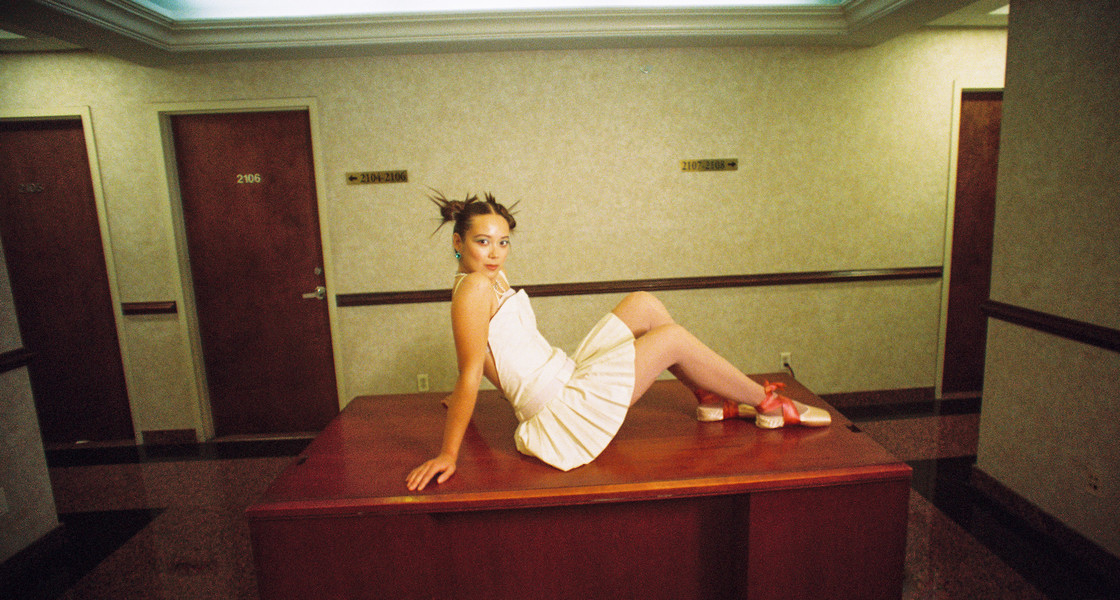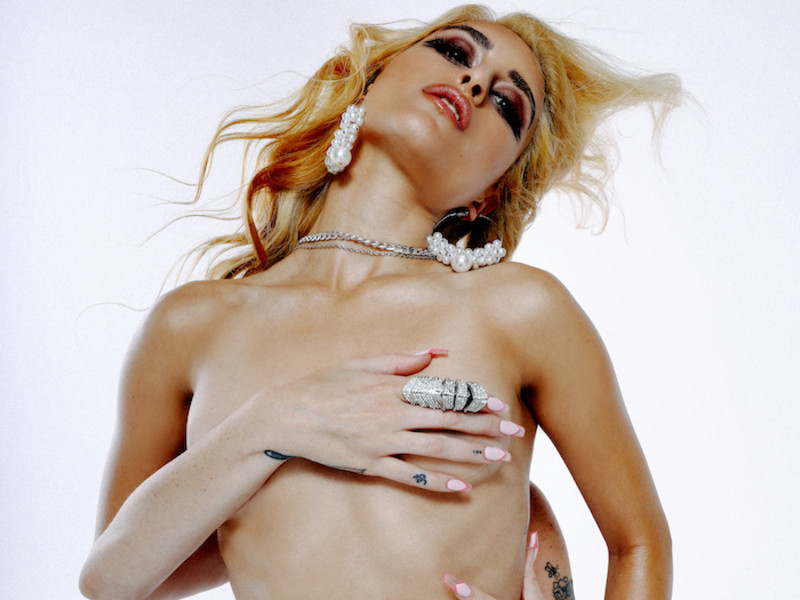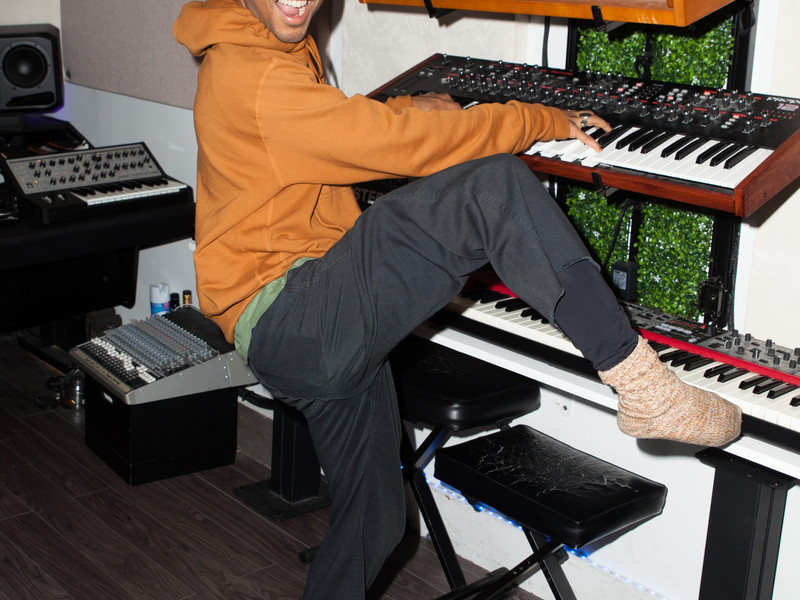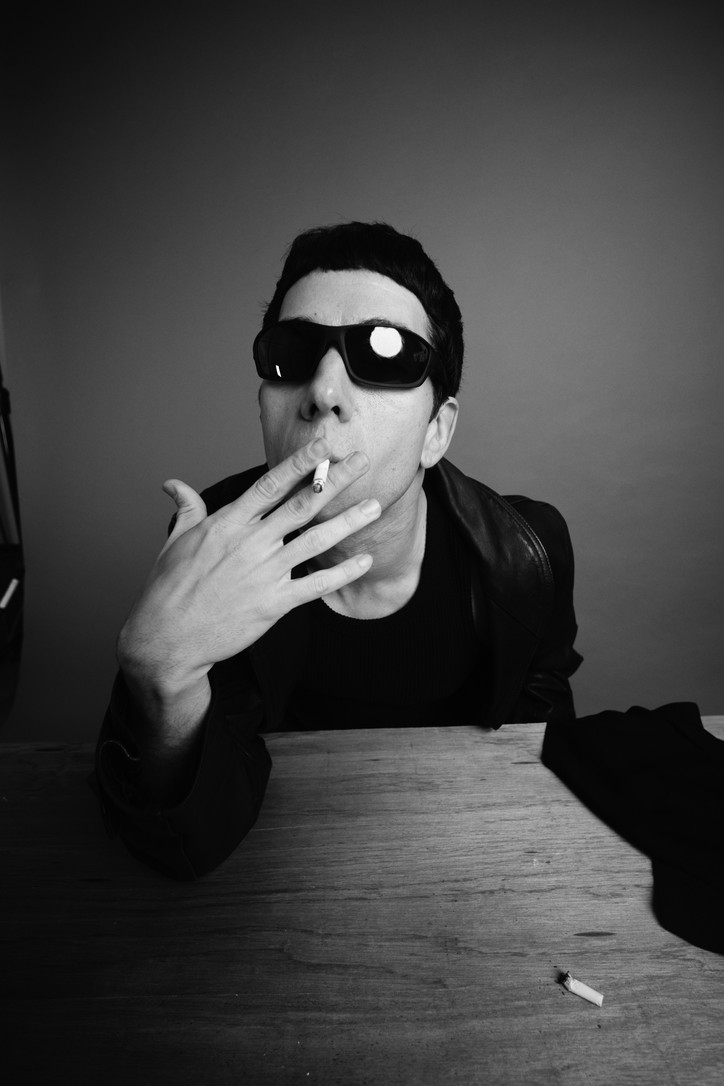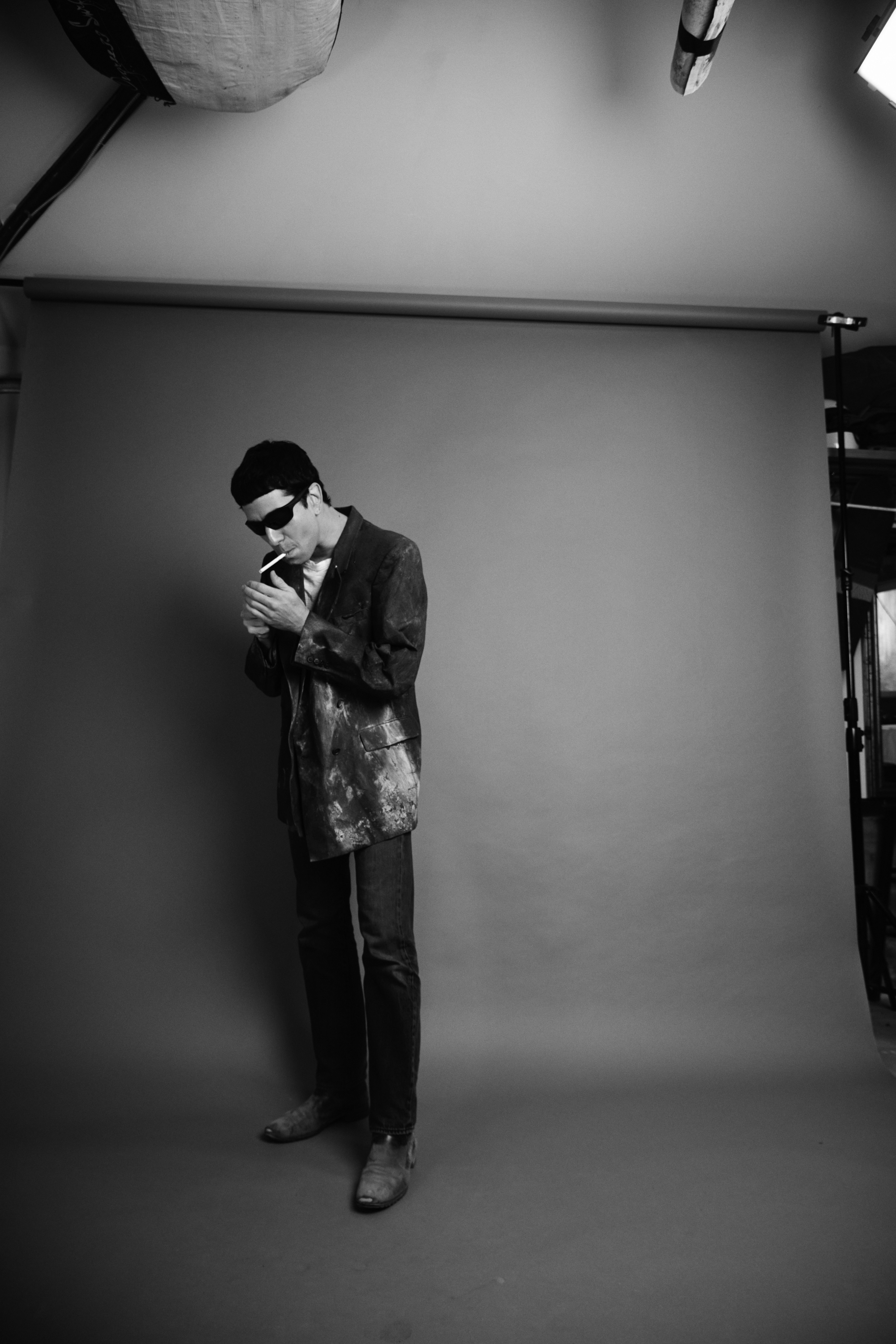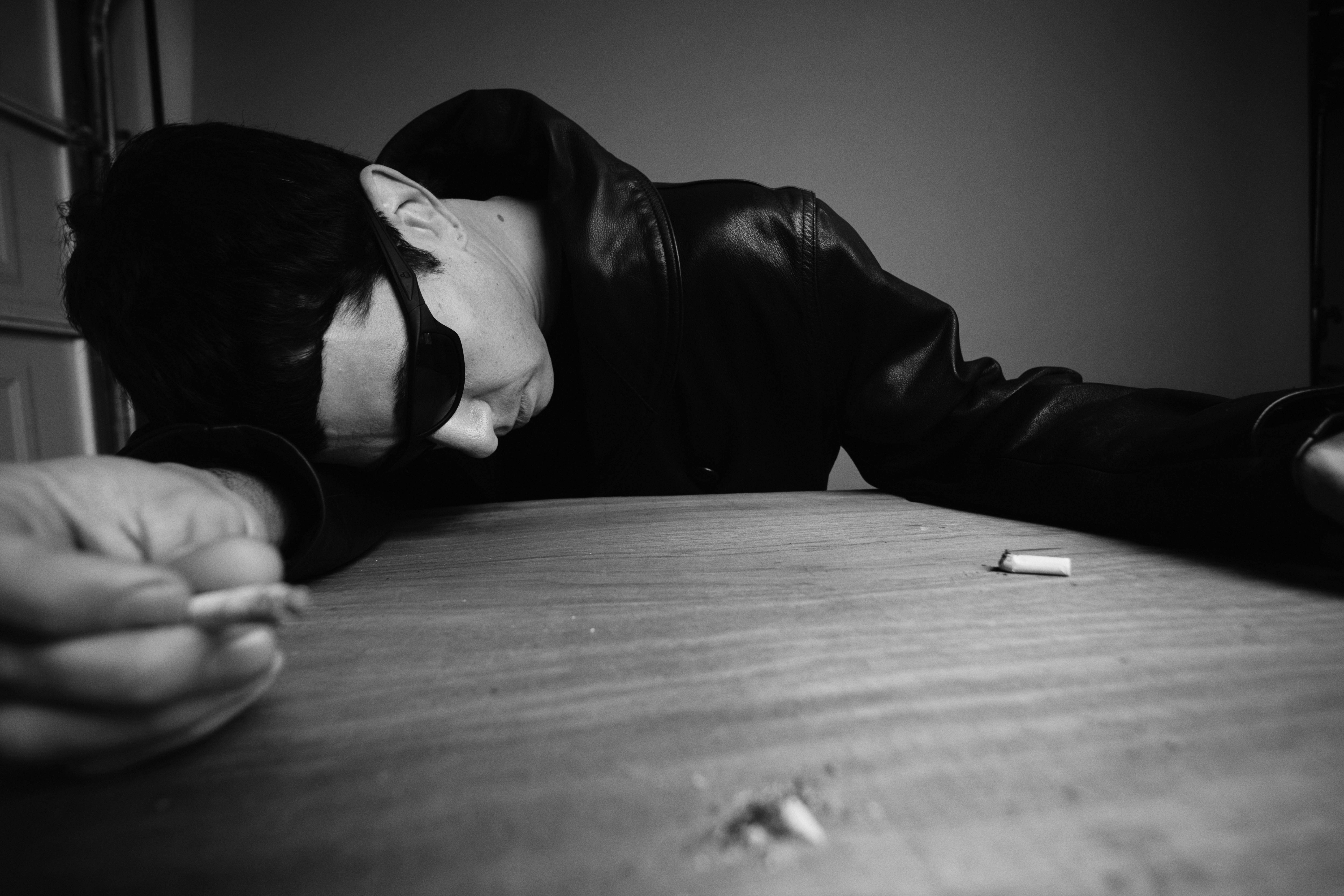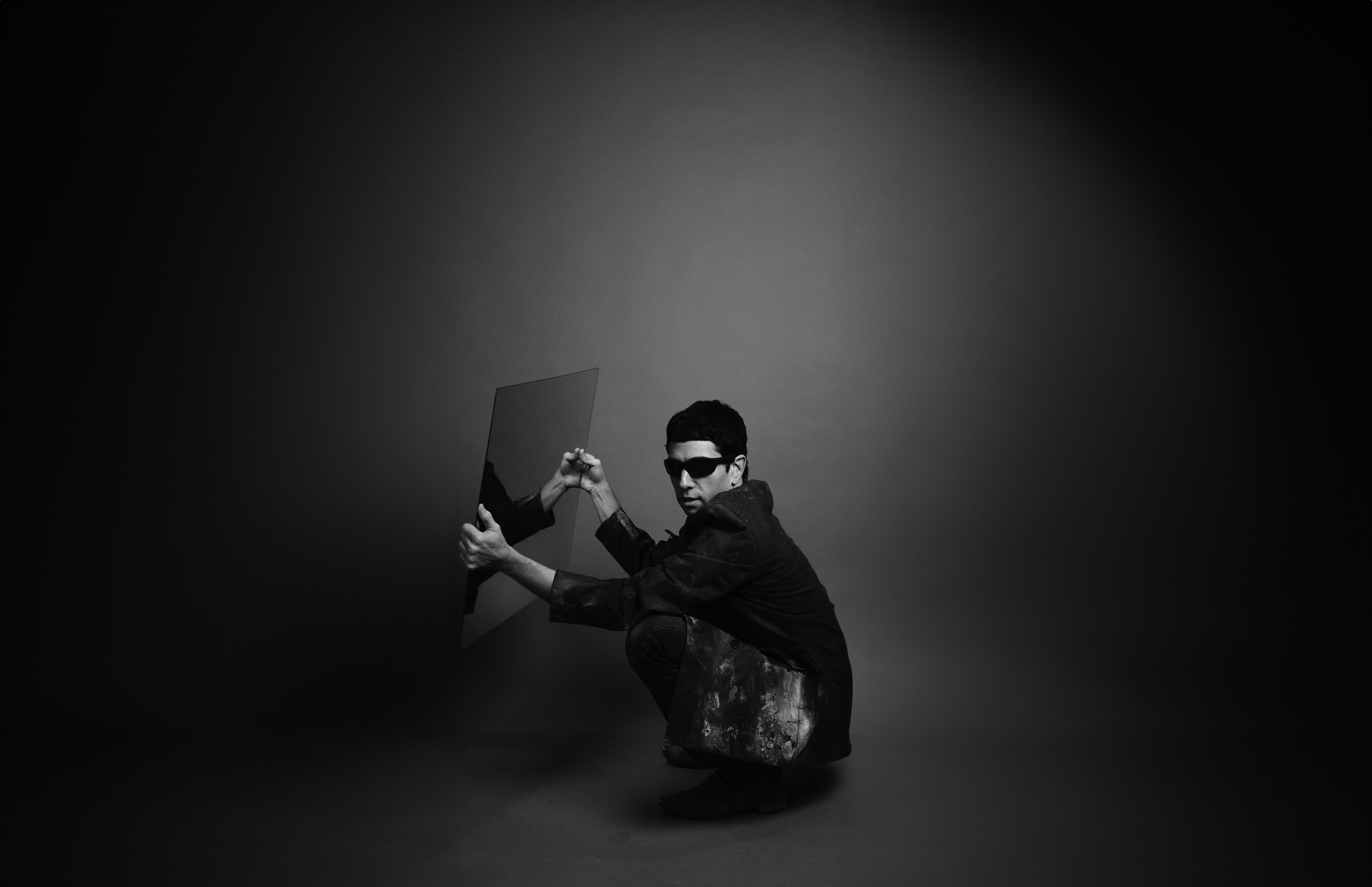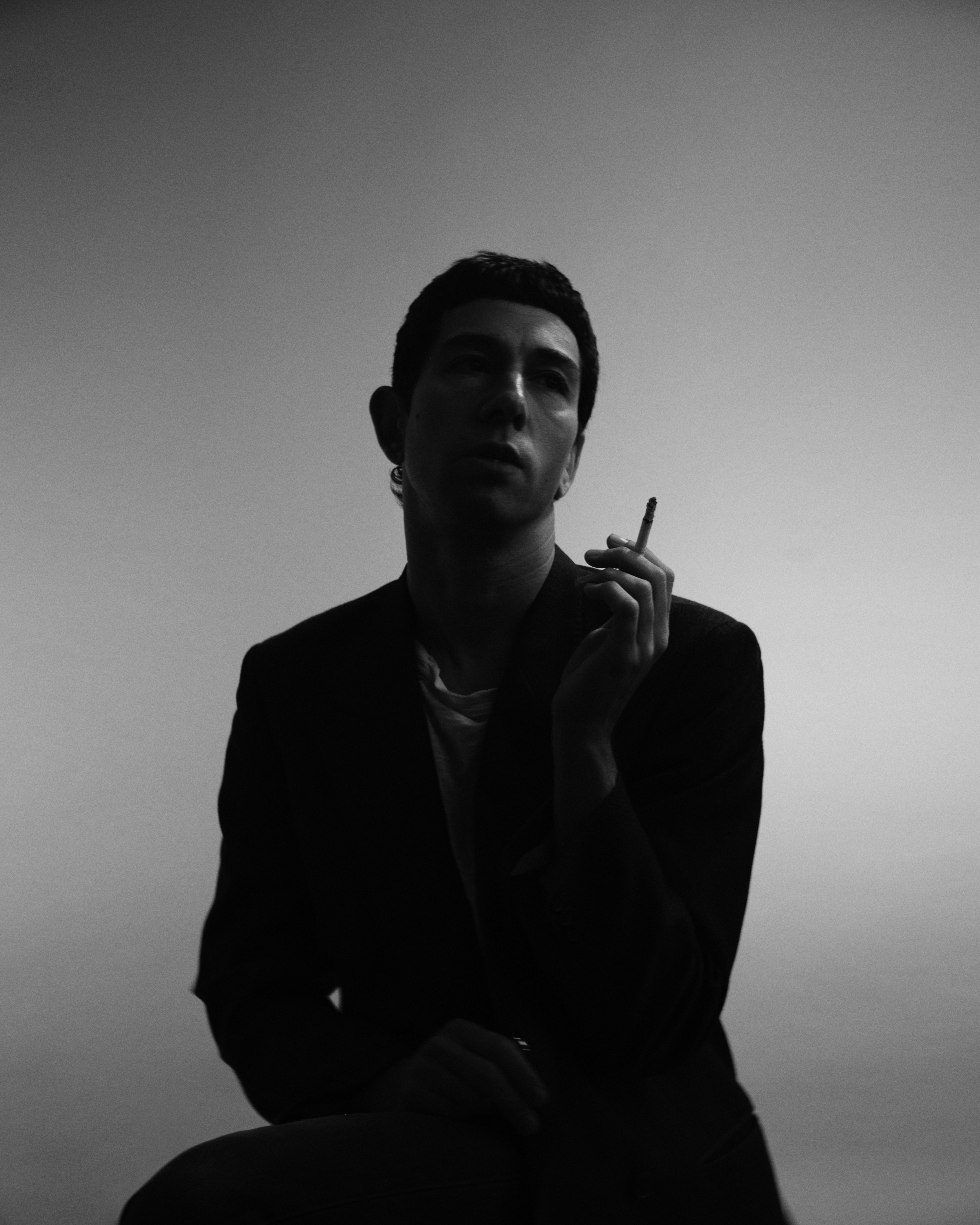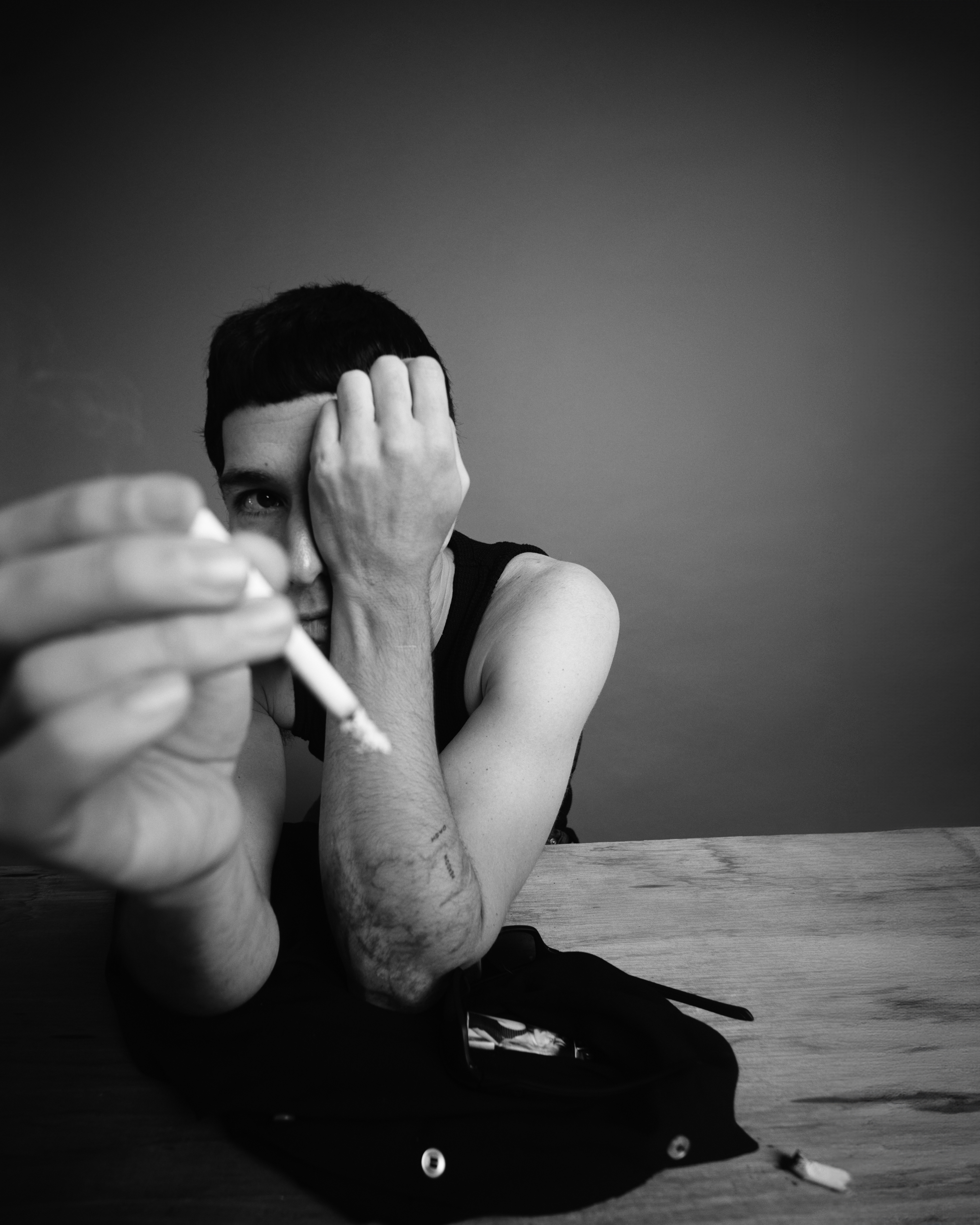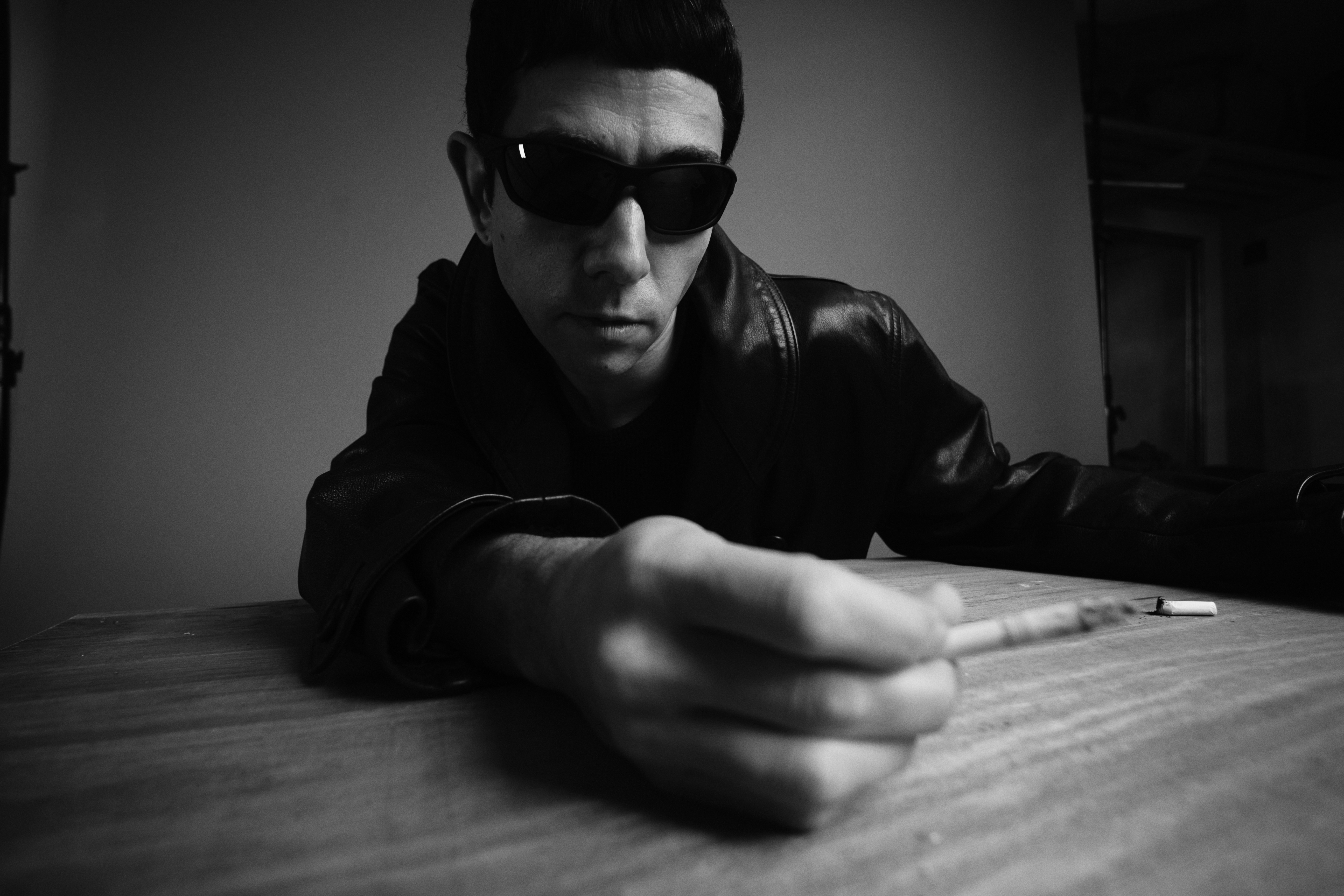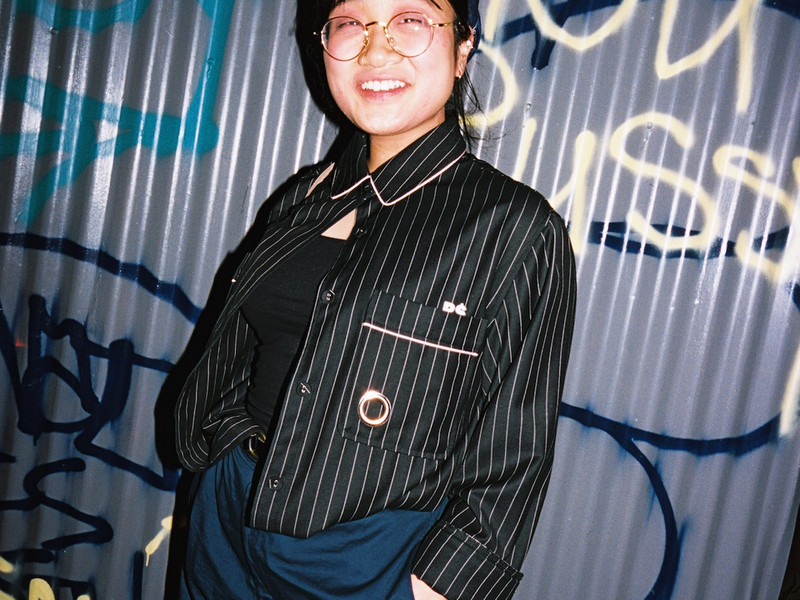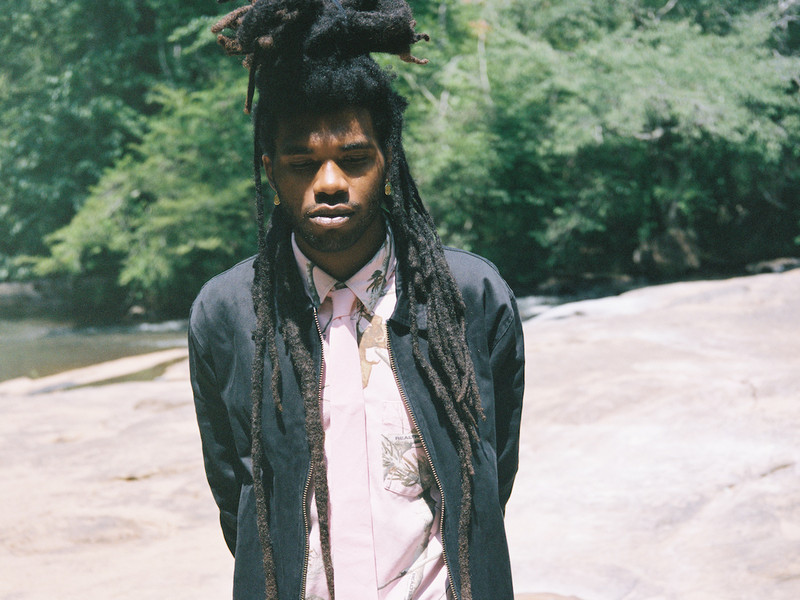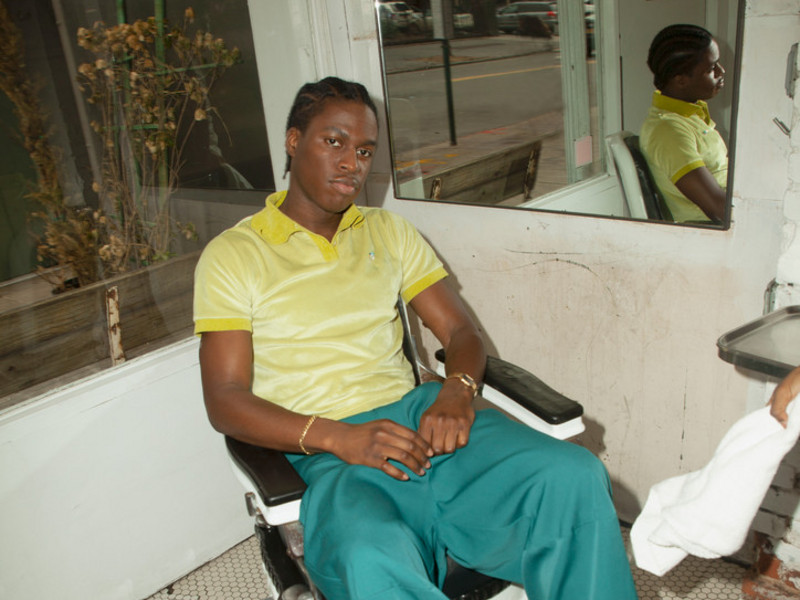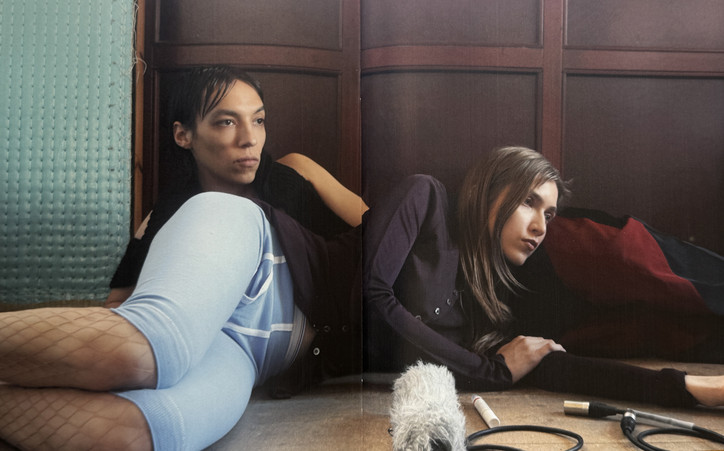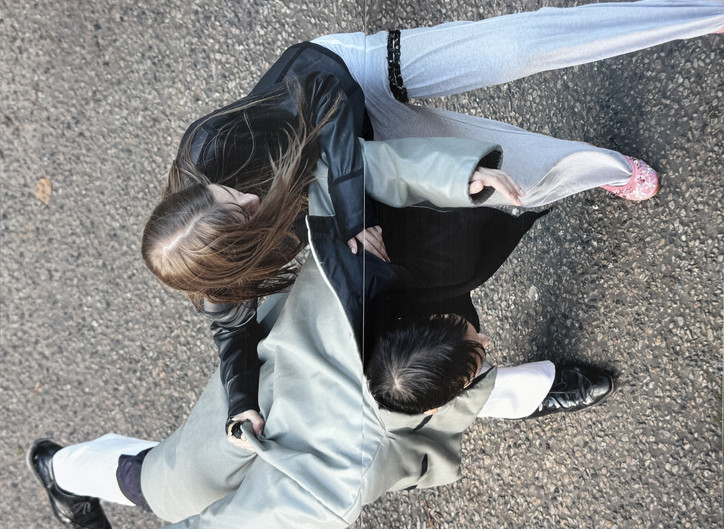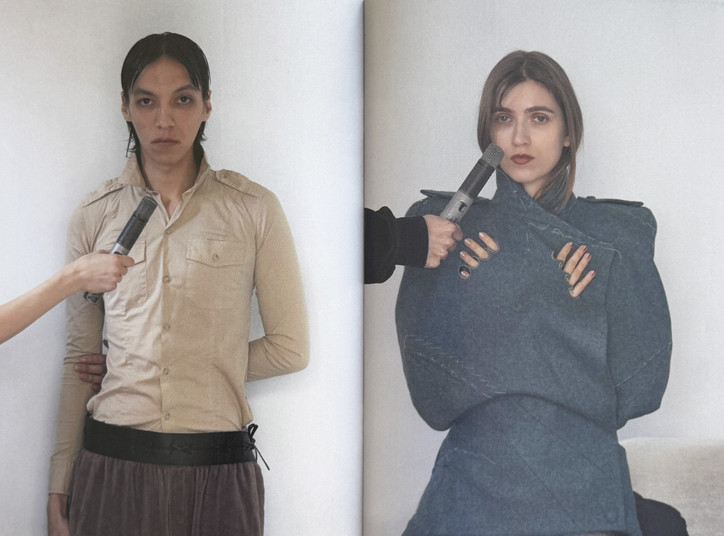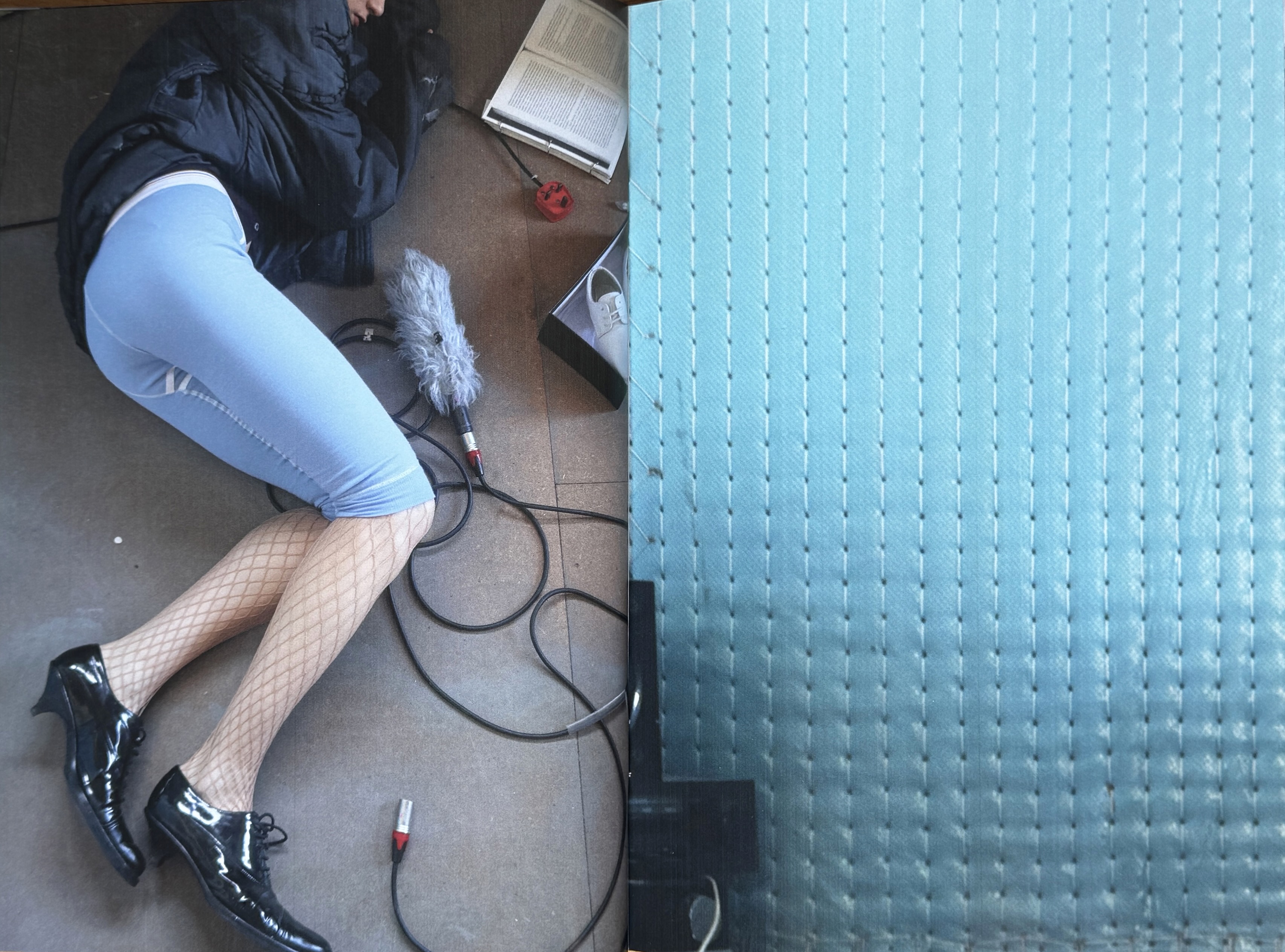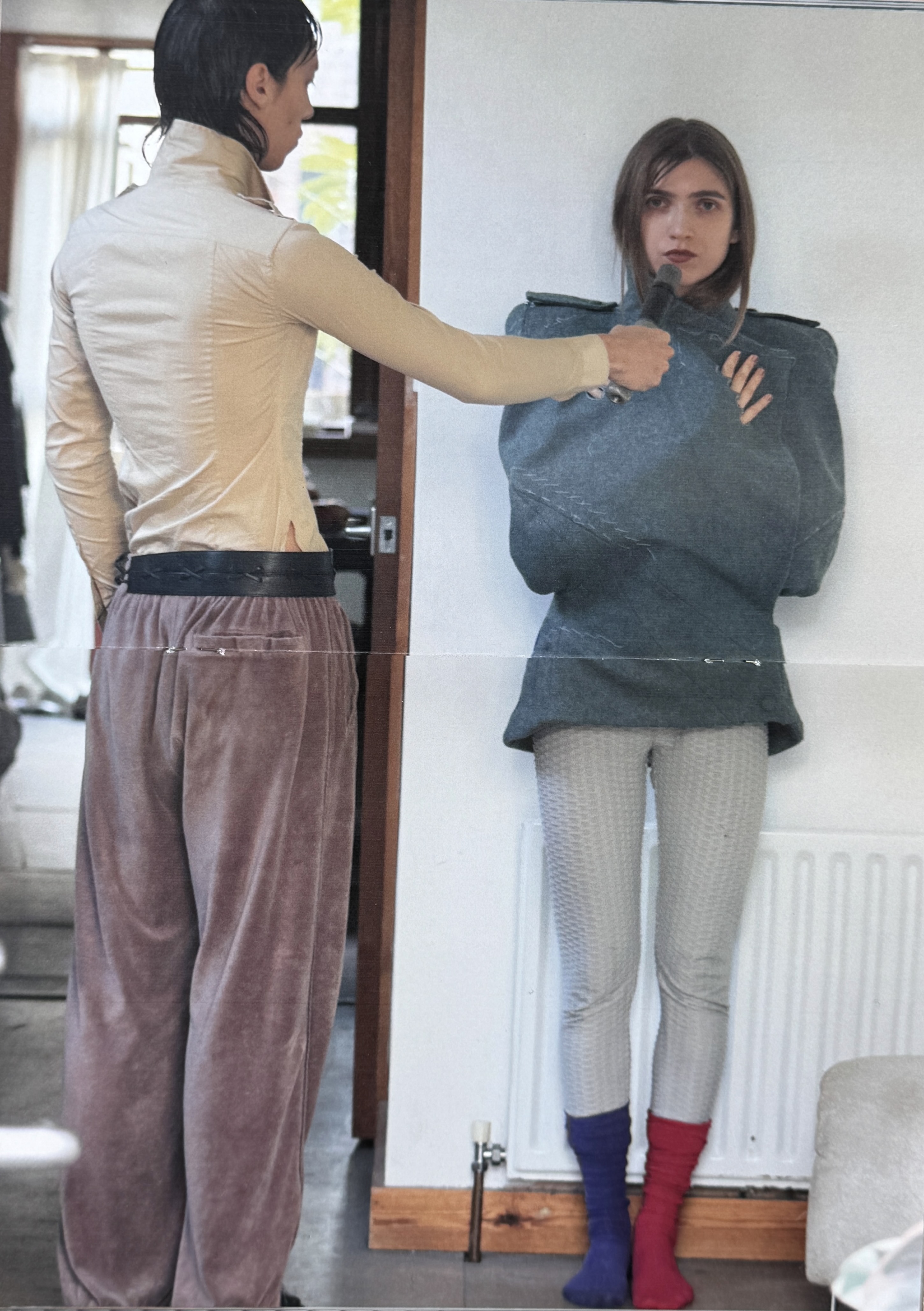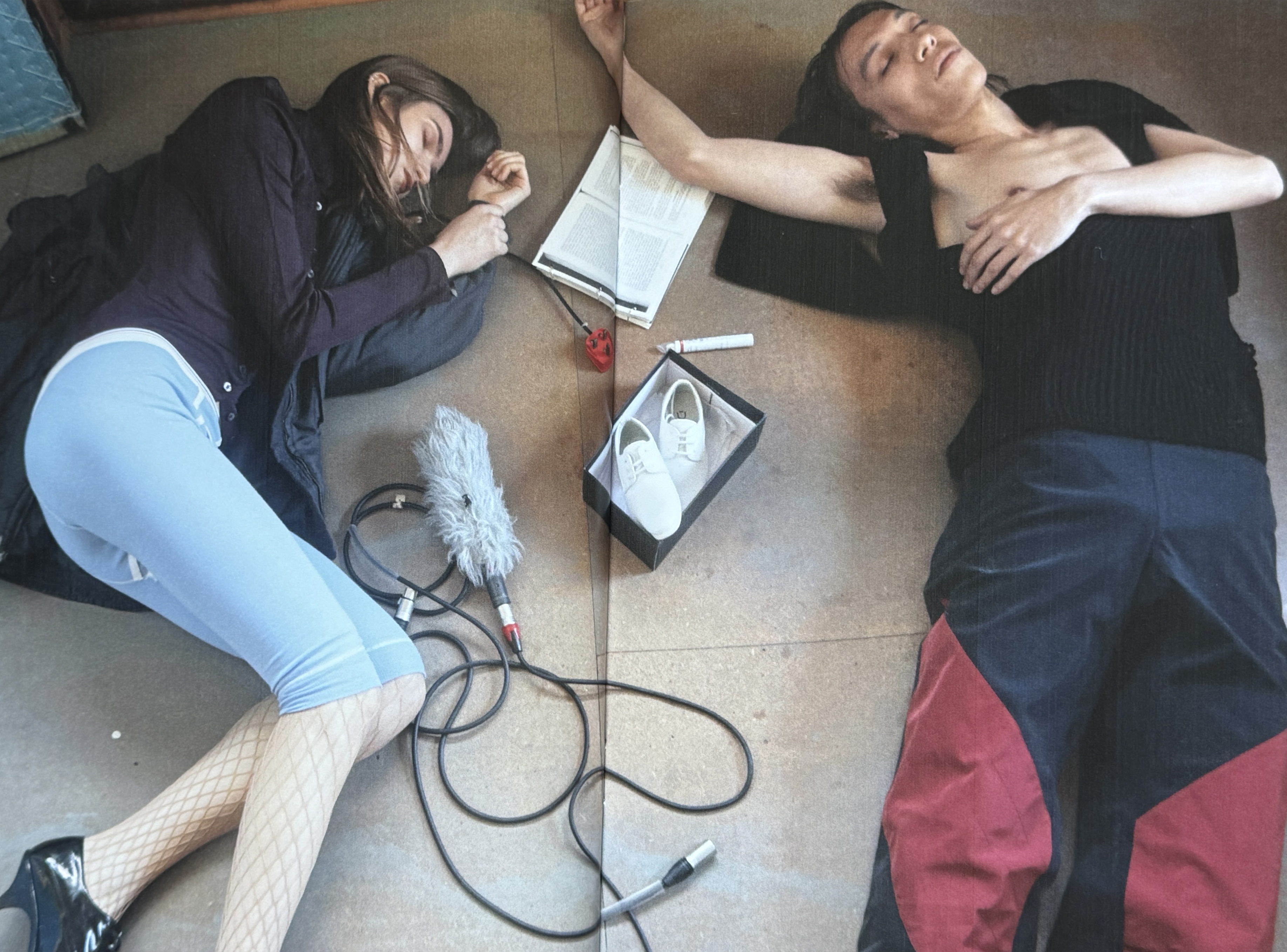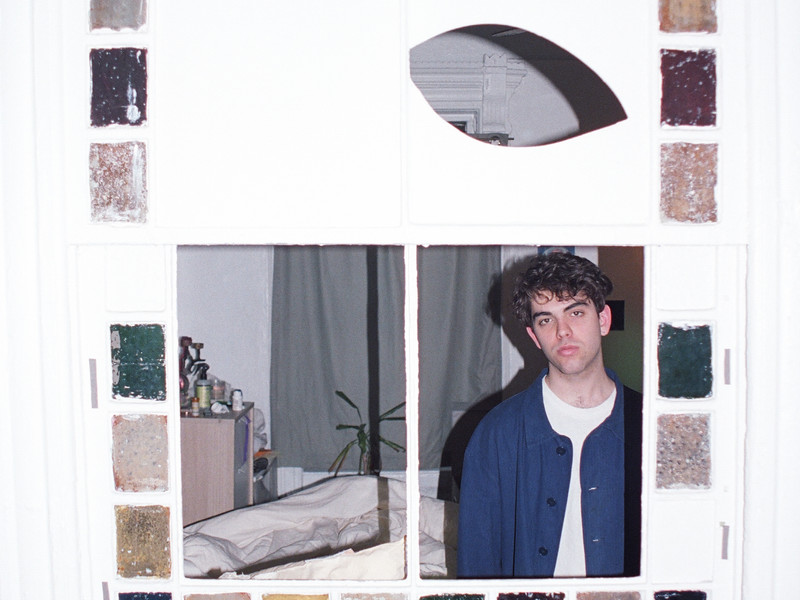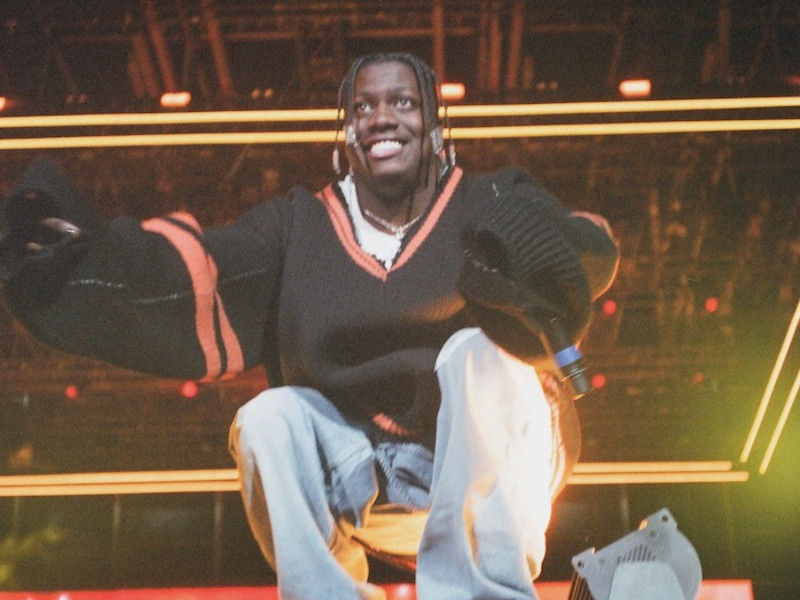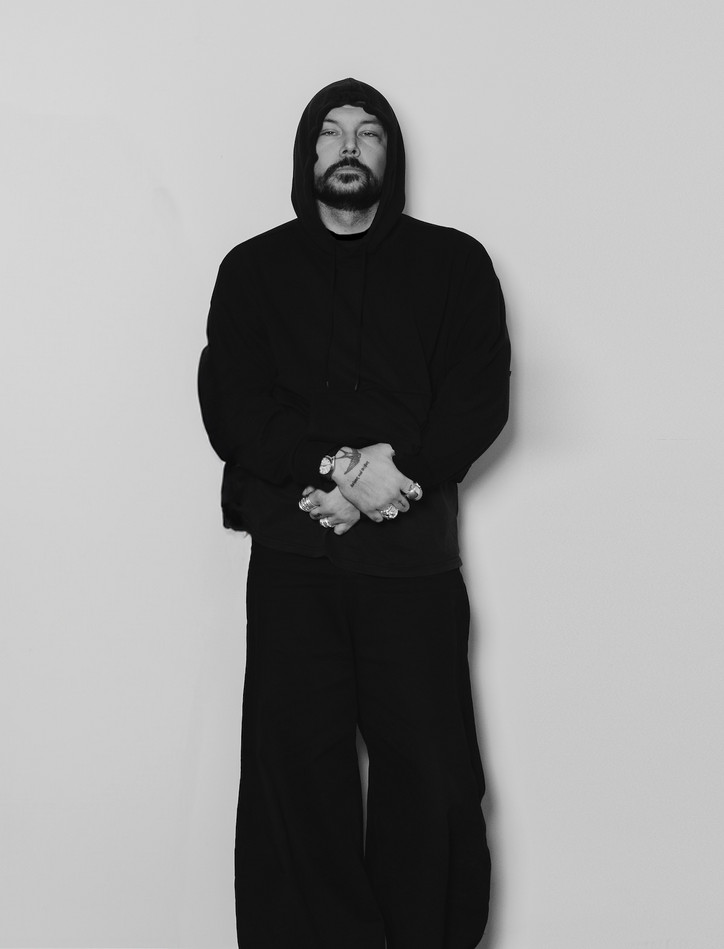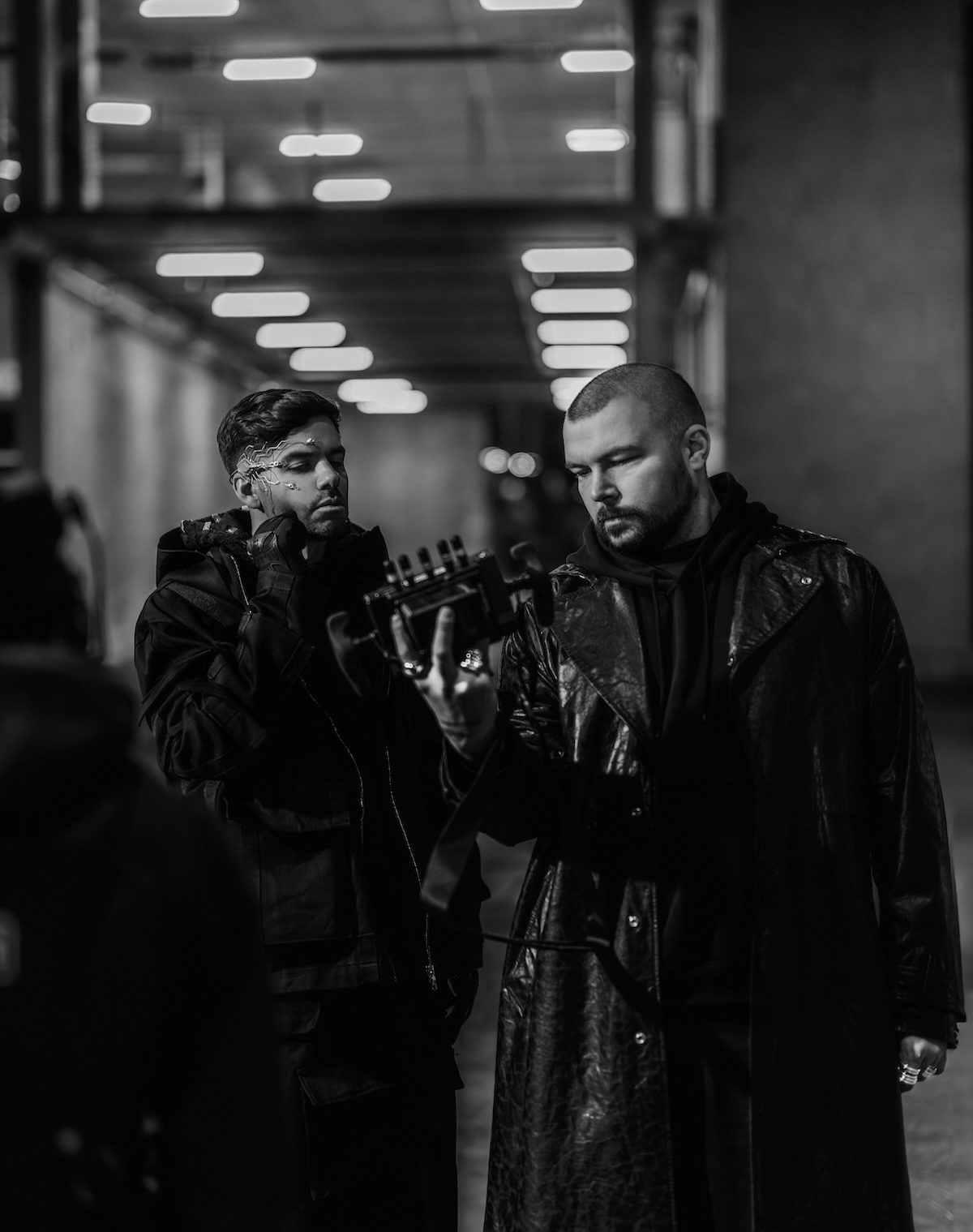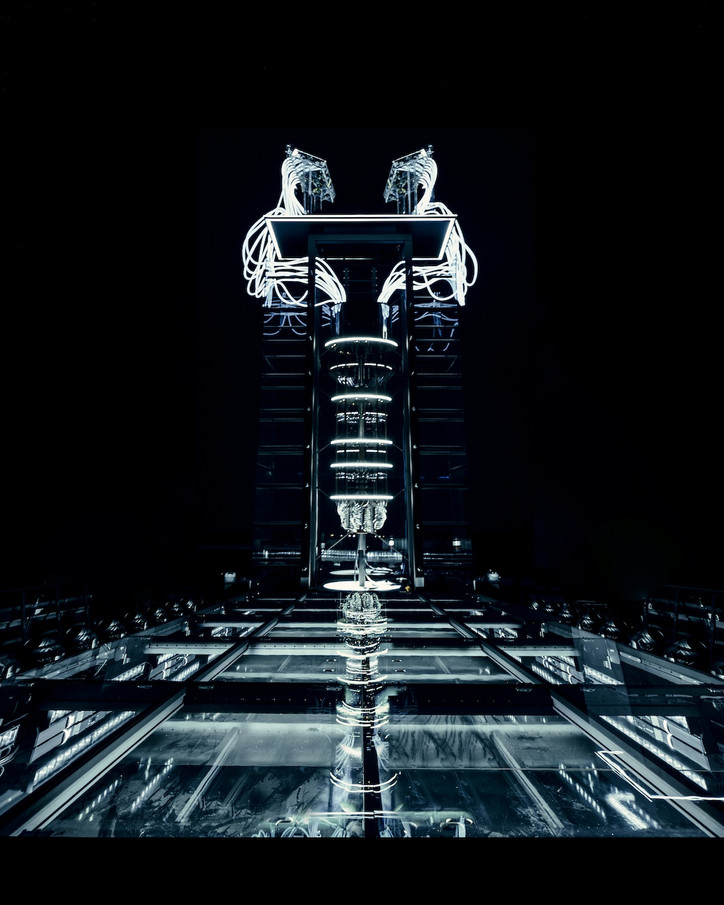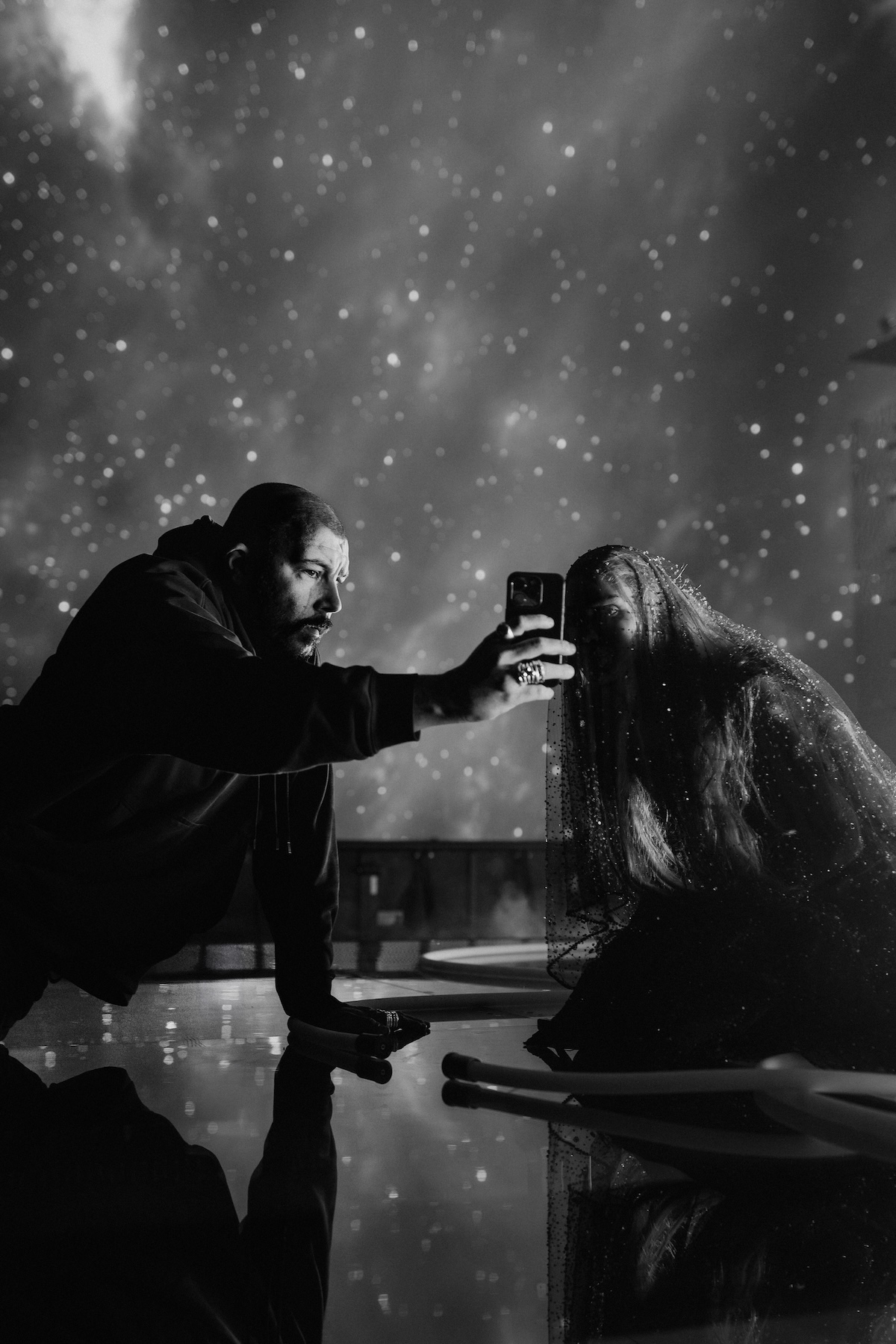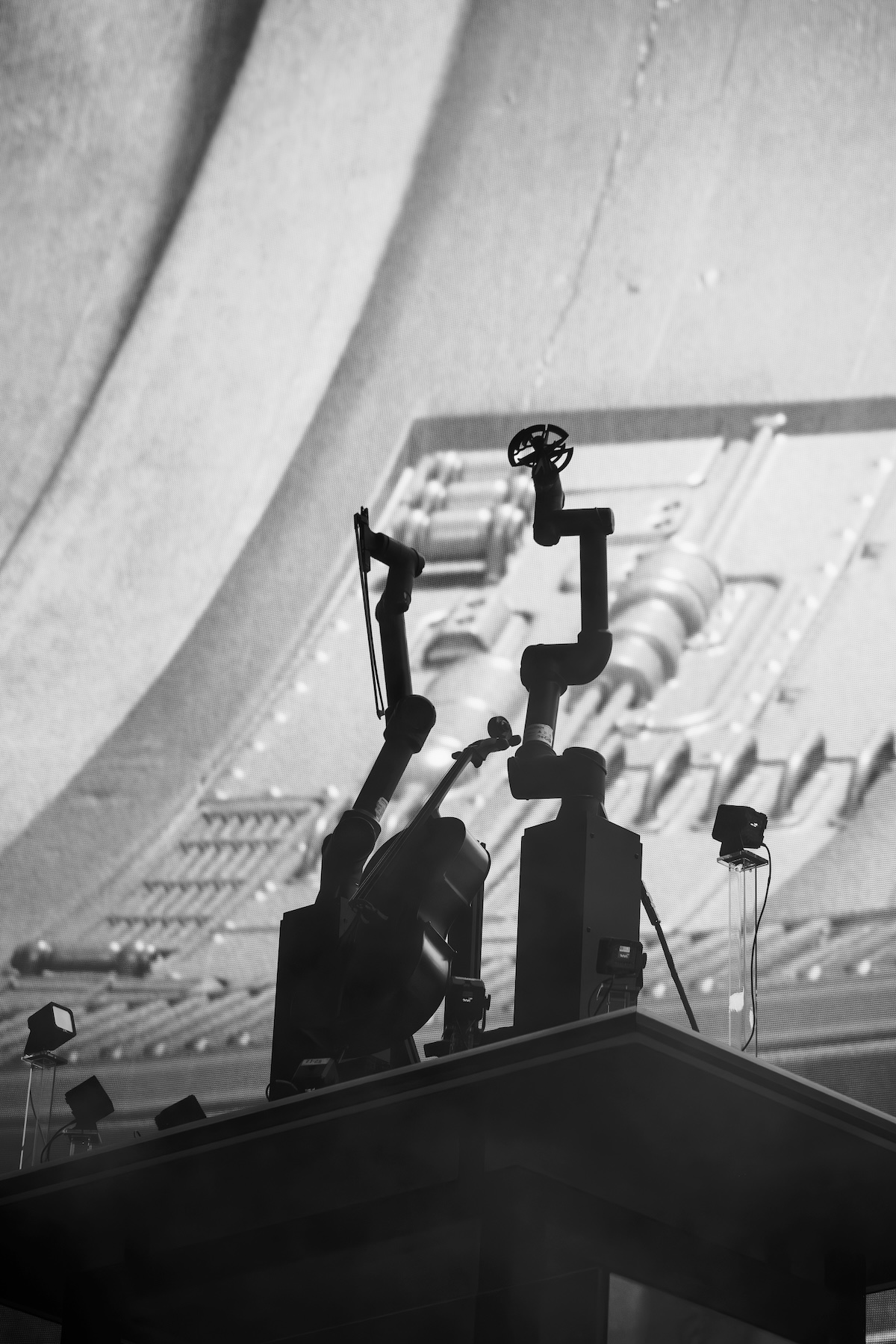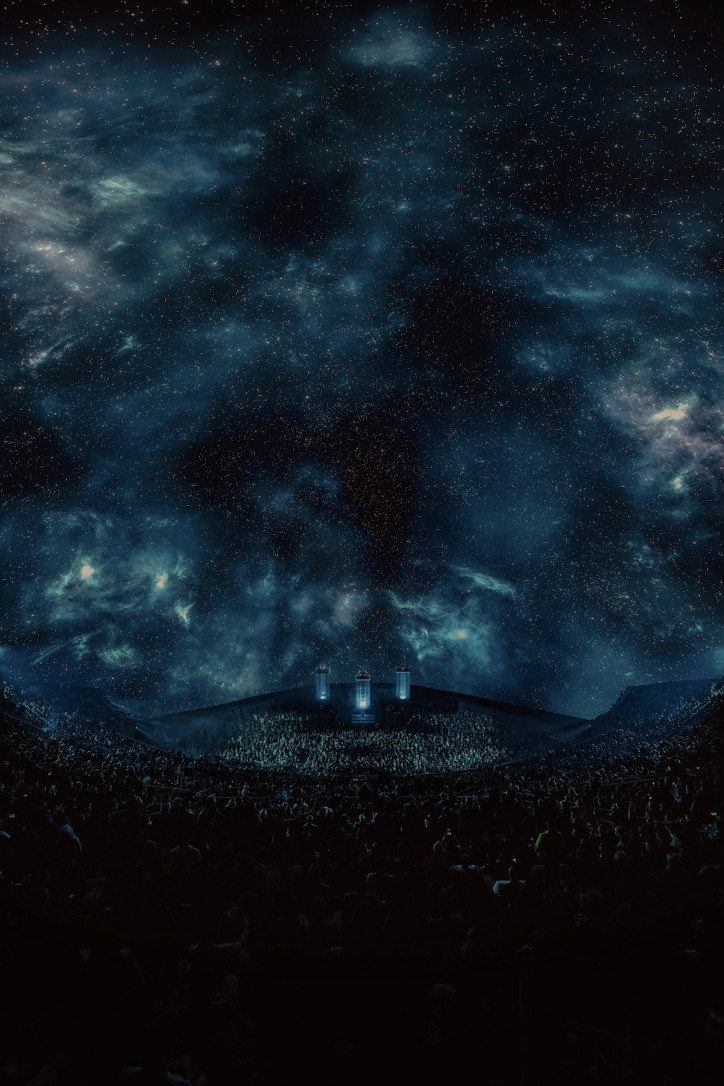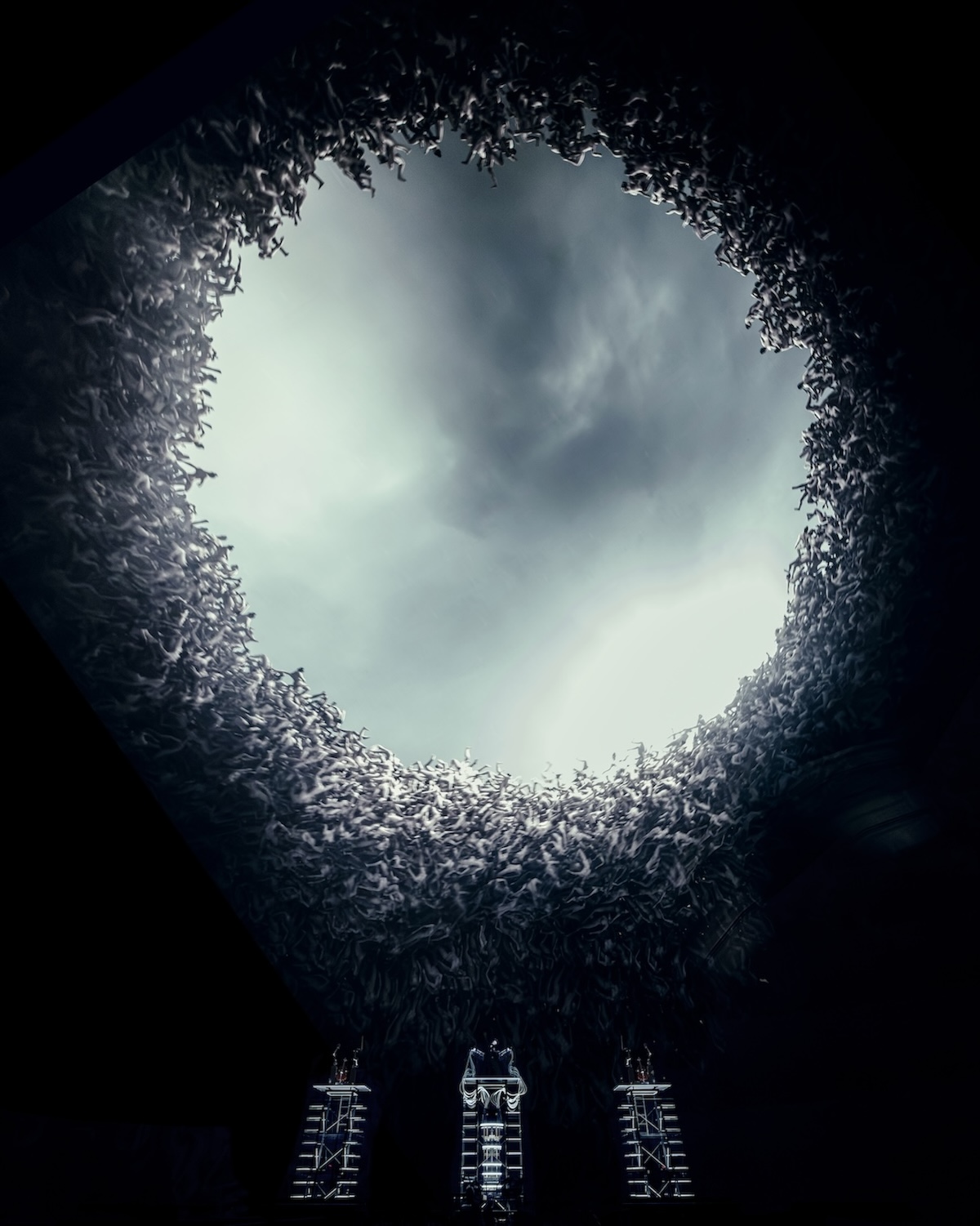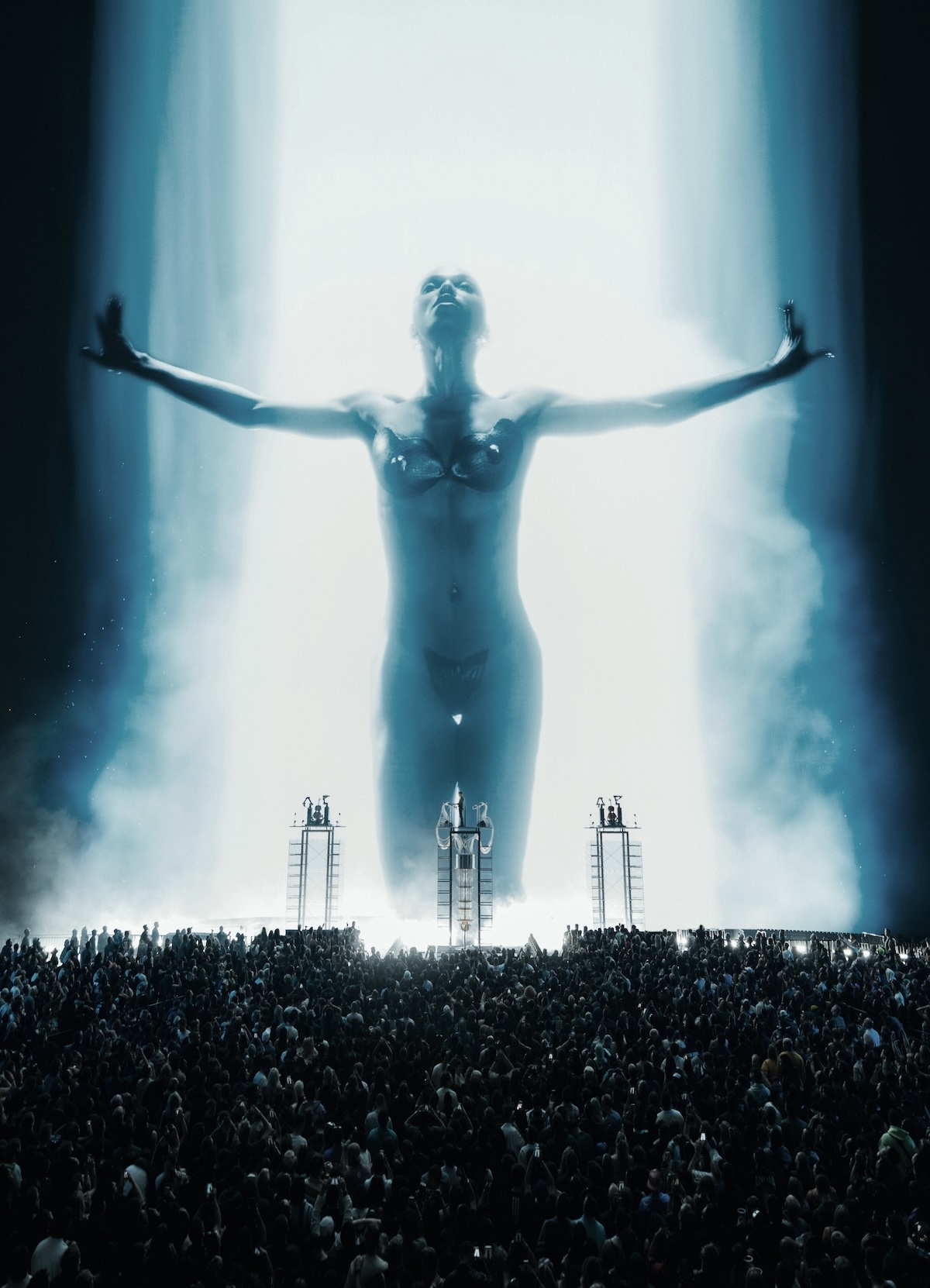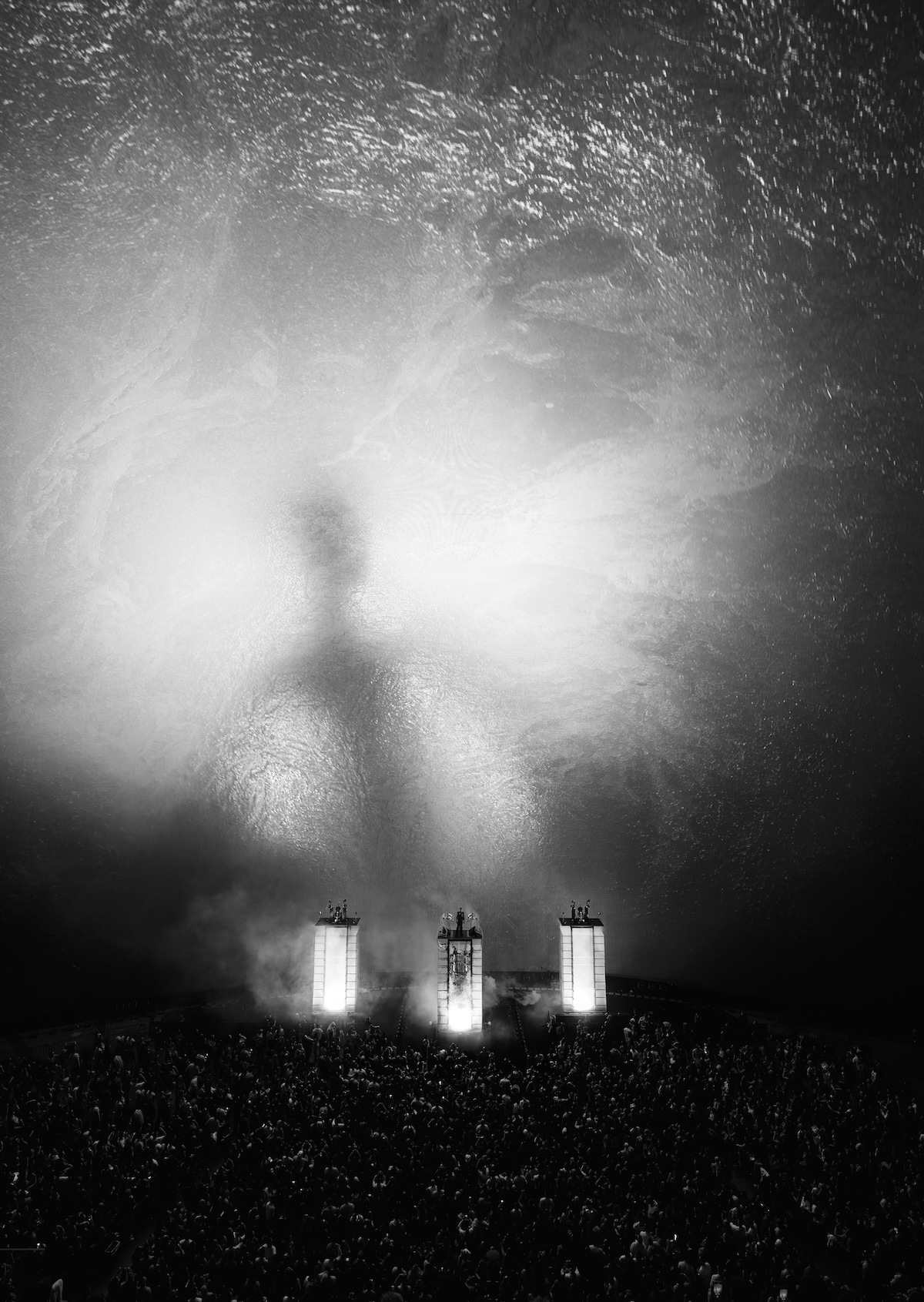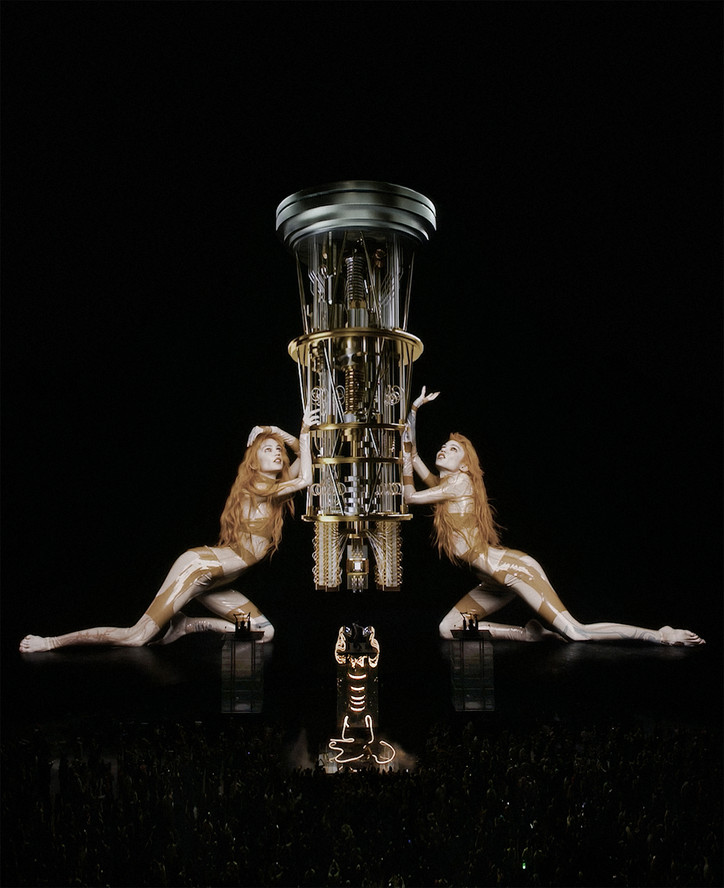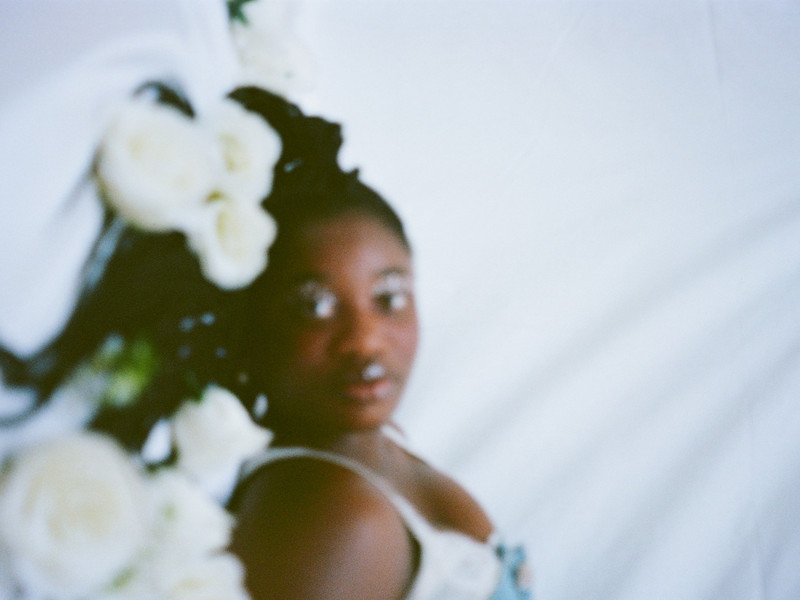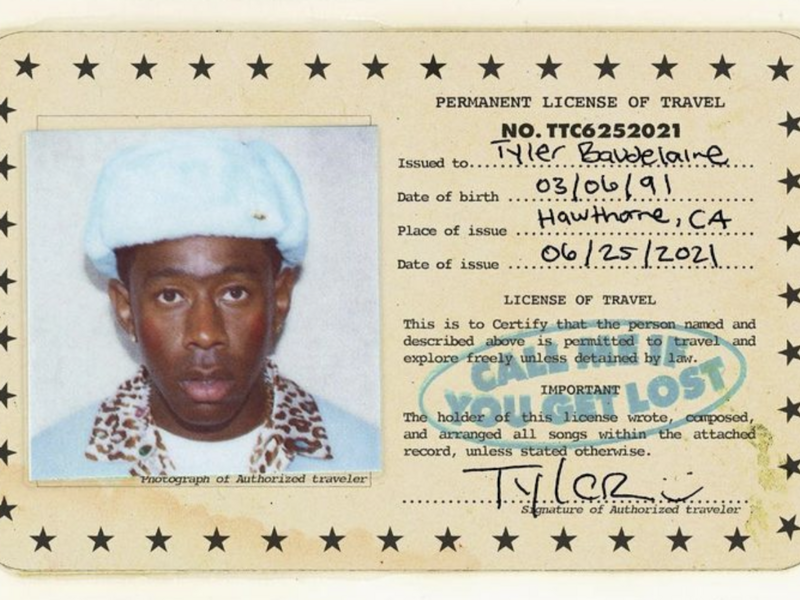Let the Trash Take Itself Out
She navigated school in her homeland with a stringent inclination to not break any rules, the motivation for her goodie-two-shoes approach being split between untethered curiosity about what she was learning, and a high-priority desire to someday attend college in, and permanently move to, the United States. Half-Icelandic and half-Chinese, she was born to a family as musical as it was culturally diverse — her mother played classical violin with the Icelandic Symphony Orchestra; her grandfather taught the instrument at China’s Central Conservatory of Music — which, with the added stimulant of rigorous schooling, translated into a restless devotion to grasping the jazz-rooted soundscapes that furnished her home, in hopes of eventually making them her own.
Boasting self-deprecating lyrics that would probably do numbers on the right corner of Twitter, a new-age story far removed from those told by dust-covered old white men rotting in record collections nationwide, and a debut album called Everything I Know About Love set to double down on both of these things later this month, Laufey, who goes mononymously, looks and sounds nothing like the olden jazz vanguard responsible for laying the foundation she expounds upon today. But as she peers contemplatively behind pitch-black oval sunglasses in a cozy Upper West Side community garden, the honking buzz of Manhattan’s ritzy bowels churning off in the near distance, she mulls over what she hasn’t heard from that era until now, and why.
“Oh– There’s this album I discovered recently — it’s Charlie Parker with Strings,” she says animatedly, capping off a list of things she’s been listening to lately. (A lot of Faye Webster.) Laufey shares a Spotify account with her father — he did get her a separate login of her own at one point, but by that time, all of her music was already saved on his — so, every now and then, whatever he may have in rotation will make a cameo appearance on her home page. “One day, he obviously liked the album, so it just showed up in my library,” she continues. “It’s so good. I can’t believe I didn’t know about that. I feel like, as a string player who loves jazz music, I’m very surprised that I hadn’t discovered that album. That’s been on repeat.”
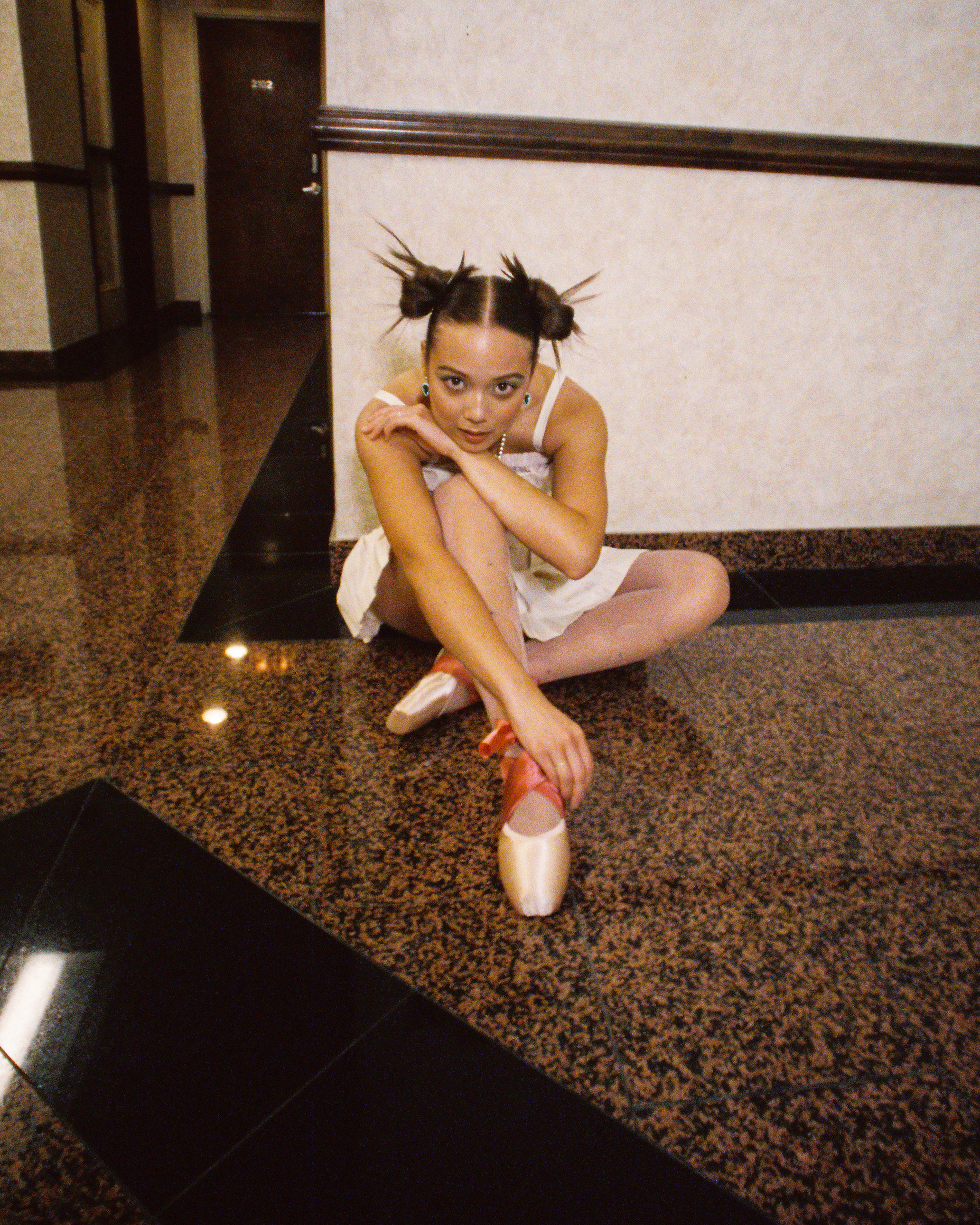

Dress ORSEUND IRIS, tights RUI, shoes CAPEZIO, necklaces and earrings SANDY LIANG.
Laufey, 23, plays a similar role for the growing listener base she’s struck a chord with. The nearly half-million consumers that follow her page on TikTok — where she posts homely guitar clips, vocal duets, and intimate, generationally ambiguous performances for a markedly newer audience — often flock to her comment sections to describe her sound as “nostalgic,” or somewhat evocative of faint memories. Whether rooted in nostalgia or a longing for something they can’t put a finger on, the general consensus across the singer’s hefty social media following is a deja vu-inflected sense of shock, understandably wielded at the notion that it’s a shame we all hadn’t discovered this sooner.
This lateness may not necessarily be so much a fault of her generation, as it is the fault of an infrastructure long notorious for its exclusivity. “I still am [scared] to a certain extent,” she says of nose-in-the-air jazz attitudes, “and it’s funny, because even though I’ve had all of this formal music education both in classical and jazz music, sometimes it still feels — a little bit — not very accessible to me. So I’m like, How does this even feel to people who haven’t studied music?”
Laufey’s most recent performance came a few days ago at the Newport Jazz Festival, where, although it’s a stage she’s dreamed of playing since she was a kid, the prospect of bringing a new-world act into old-world territory still proved daunting. “I went back into my music college shell a little bit, where I was like Oh my God, I’m sure my professors are walking around here,” she laughs. “But then I was like Wait — this is exactly why I’m here. I need to push through these stigmas and these ideas that I’ve had. And once I got through that, I was very happy.”
For a while, rigid music-school shells contributed just as much to her sonic literacy as it did to an imaginative illiteracy. At the institutions she studied in growing up, it was a matter of course that she’d be given sheet music to read from, and judged based on accuracy. It was only when she got to Boston’s revered Berklee College of Music — yes, she did wind up making good on that goal to study in and move to the States — that she learned that breaking a rule or two wasn't punishable by death. Her earliest courses there banked as heavily on improvisation as her old schools did on precision, which, predictably for someone whose childhood was rife with classical strings and a trained ear, posed a new, existential kind of challenge. “I was a cello principal there, so I was put in a jazz band, and it was like [clap] Alright, improvise,” she recounts. “And I was like… What? I had no clue, and I felt like everything I was doing was wrong, and they’re all like Oh, there are no wrongs in improvisation, but I’m like How can that be? This doesn’t sound right.”
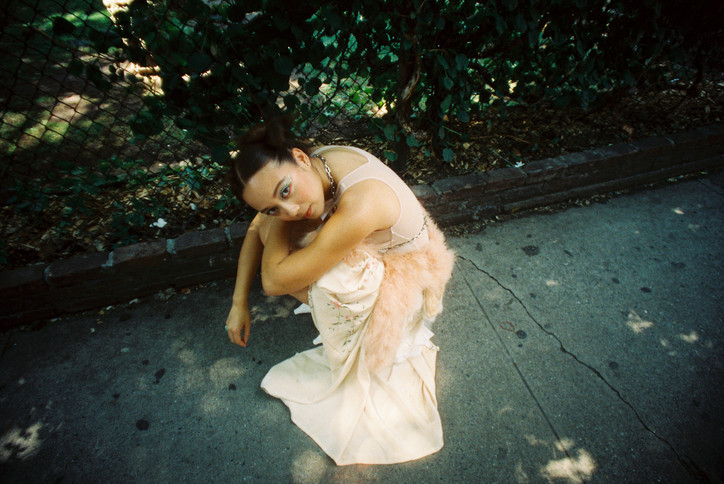
Bodysuit MARIEMUR, skirt KIMBERLY CORDAY, shoes RUI, bra KARA, bracelet SANDY LIANG.
But by the time she graduated from Berklee in 2021, a fluid creative process worked its way into being a focal point of her approach — and at the very least, over the 40-plus minutes that comprise her forthcoming LP, either she isn’t doing anything wrong, or she’s having too much fun to care. Titled as a tongue-in-cheek nod to the fact that she’s never been in love (with another human), Everything I Know About Love sees Laufey masterfully find balance between a fundamental jazz skeleton, and the self-reflective, intrinsic, rom-com-ready flesh she stuffs within its bones. On single “Dear Soulmate,” released this past July, she asks a series of lovelorn questions to an unnamed interest eventually revealed to be hypothetical. “Do you live in New York City?,” she inquires softly in the song’s opening lines, “Or a couple towns away? Wherever you are, I’d jump in my car, just to see you today.” The tune ends with fitting words for an album dedicated to a fleeting concept: “I can’t wait to fall in love with you,” she sings, and with a wistful string of arpeggiations on both a piano and an acoustic guitar, the music fades out.
Sonically speaking, “Dear Soulmate” and Everything I Know About Love both bank on the same generational fusion that has made Laufey compelling to young audiences and old ones alike — at the same time that she’s curating soundscapes not too far removed from something you may hear on My Fair Lady, she’s also finding elusive nooks and crannies through which she can stick touchstones compatible for a generation less likely to be streaming Charlie Parker on Spotify. The dichotomy is one that makes her as appealing as she is perhaps polarizing. At this stage in the game, she doesn’t often get negative feedback online, but on the rare occasions that she does — and it isn’t something trivial about an outfit she’s wearing, “because for some reason that’s still a problem in our society” — it might come from members of an older musical lineage taking issue with what she’s doing to leave opportunistic cracks in historically-closed doors. “It’s rarely about the music, which is very encouraging, because I was scared that older people would come and be like, Why are you putting this drum beat into this jazz standard?,” she says. “Or vice versa, where young people would be like this is so old — I rarely get comments like that.”
But still, the potential is both present for the musician, and terrifying for the growing litany of aspiring ones that look to her for inspiration. Many of her messages across social media platforms come from young artists with varying versions of the same question — how do you overcome nervousness and start putting your work on the internet? — and, although she reports matter-of-factly that she’s learned to largely eliminate the fear factor for herself, it’s something she knows is increasingly challenging for children of an ever-evolving digital age. “I totally understand how extremely daunting it can be — especially if you’re in middle school or high school, those are brutal ages — if you want to post something of yourself singing, which you’ve never done before,” she says. “But I always told myself: let the trash take itself out. If they don’t want to stick around for my music and who I am, let them go.”
Laufey was largely introduced to American audiences when she performed her affecting single “Like The Movies” as a musical guest on Jimmy Kimmel Live! earlier this year. It was far from her first time braving the public eye. When she was 15 years old in Iceland, she performed as a soloist in the same national Symphony Orchestra that housed her mother’s violin; she went on to become a finalist on Ísland Got Talent (the Icelandic installment of America’s Got Talent) while she was still a teenager, then, one year later, became the then-youngest competitor in The Voice Iceland’s history. A large factor in taking the pressure off was Iceland’s small-scale stakes — “I think I was aware that people knew who I was,” she says, “but at the end of the day, everyone in Iceland kind of knows each other” — though nonetheless, the gauntlet allowed her to gain considerable, now-tangible ground in making music as public-facing as it is introspective.
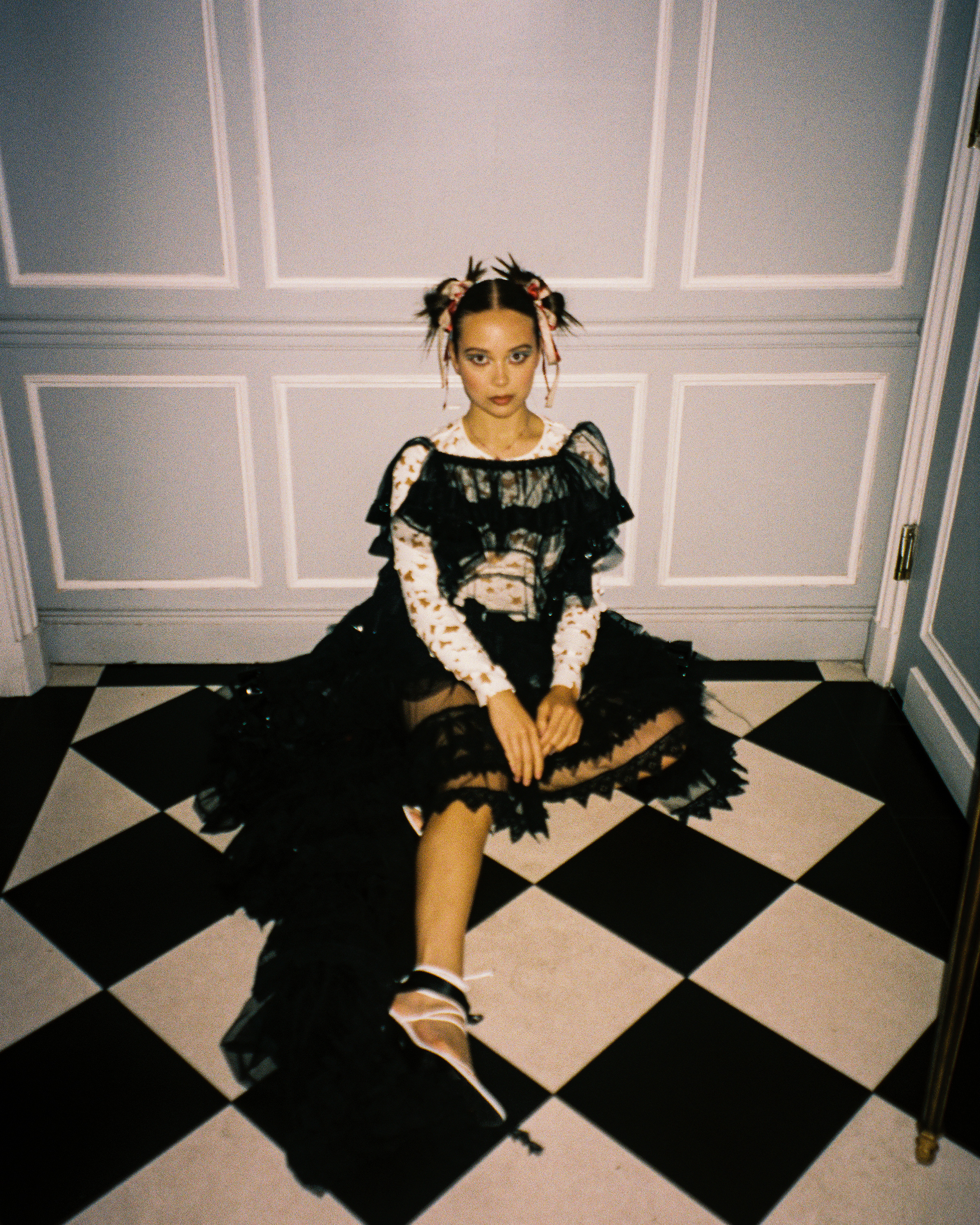
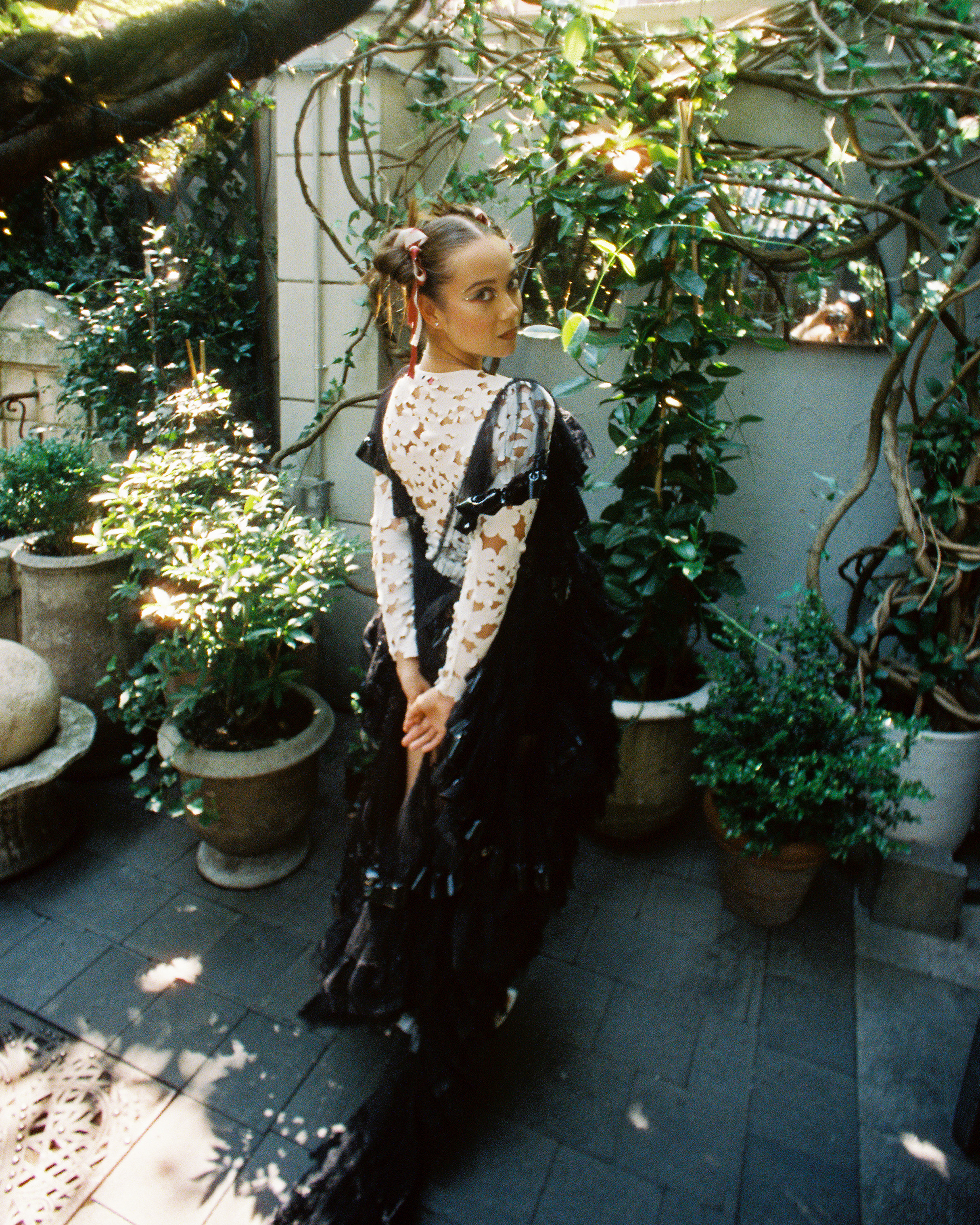
Dress SAINT SINTRA, top TYLER MCGILLIVARY, shoes REIKI NEN.
Now, the personal-to-communal dynamic is one she both relishes in, and credits to the newly vulnerable tones social media has evolved to strike. “Half these songs I write, I’m just making fun of myself,” she admits. “That’s very modern humor. Everybody’s just making fun of themselves hoping that someone will relate.” A walls-down ethos like this one, tied together with a progressively elastic sense of structure, is part of why she says “there’s never been a better time to make music than now”: “My generation, this TikTok generation, Gen-Z, they don’t care so much about genre anymore. You’re not going into a record store and going straight to the section of the music that you love. You’re going on a streaming platform and turning on a mood playlist. It’s so much more about feeling, now— do I want to feel cozy? Do I want something more energetic? Everything is more about vibe, and I think that’s the best thing that’s ever happened to music.”
A good portion of Everything I Know About Love arose from lyrics written in dorm rooms at Berkley, when these future-friendly sonic liberationist ideas were first beginning to make sense for her. “When I moved to college alone,” she recounts with a sheepish grin, “I started breaking some rules for the first time. And it’s funny, because I was so focused on following rules — but somehow, the second I started breaking them, my life started getting so much better. Both breaking musical rules, and a couple of life rules.” She turns to her publicist, who is sitting on a nearby bench. “That’s really bad advice to give people, I’m so sorry — as my publicist, is that okay to say?”
Her publicist says yes (which is why you just read it), and for what it sounds like, it’s quite likely that every time she asked herself a variation of the same question — is that okay to say? — over the recording process of her new album, the same answer came back. On one track, she admits, with a motherly intonation strewn over acoustic guitar arpeggiations, a slew of not-so-impressive things: the first verse alone touches on directionlessness, absent-mindedness, and a tendency to talk to the walls of her room. By the end of the song, though — much like the rest of her music — embarrassing anecdotes aside, when she relays it all back to the album’s titular mystery and its strange doings, it’s difficult not to admit that we’ve all been there.
Part of what makes her honest stories so accessible is the package they’re delivered in. Most of the online commenters that call her music “nostalgic” credit the sense to her voice, which oscillates between the aged wisdom of an old soul, and the exploratory openness of a young one. The ethereal exploits of both her vocal register, and her artistry writ large, are a quality she absorbed from growing up in an equally ethereal place, locationally and mentally. She moved around more than the average young person, so in place of a concrete geographical sense of home, she instead found belonging in music and family. “I was really close with my family, because we moved around so much. My twin sister was, like, my best friend. I literally wrote a song about it,” she says. “But growing up was fun. When you grow up in Iceland, it’s so isolated, and you have this innate sense of… you become a dreamer. You get this sense of wanderlust that I think definitely shows through in my music.” Asked whether she still considers herself a dreamer: “I even used to be more of a realist, and now I’m absolutely delusional.”
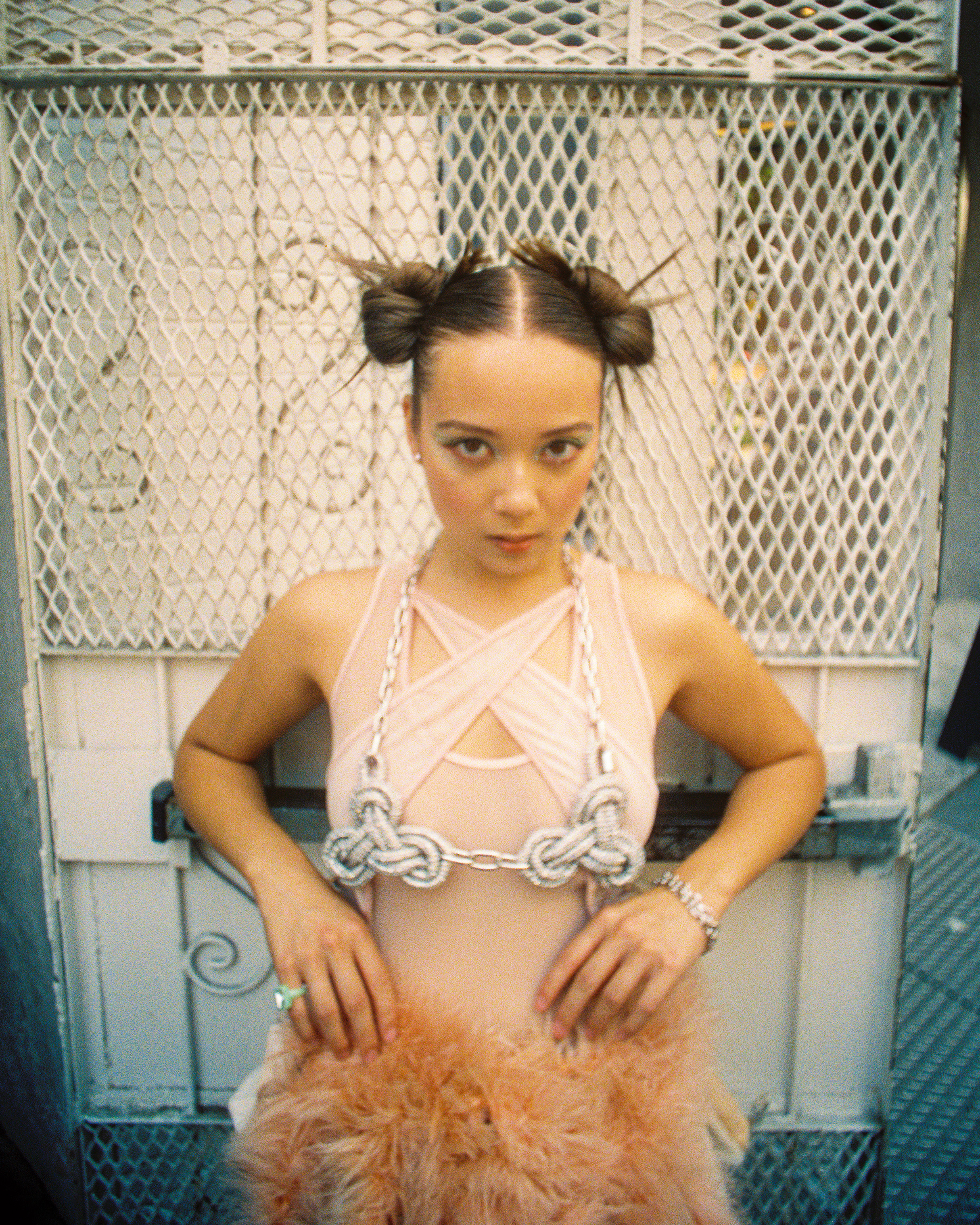
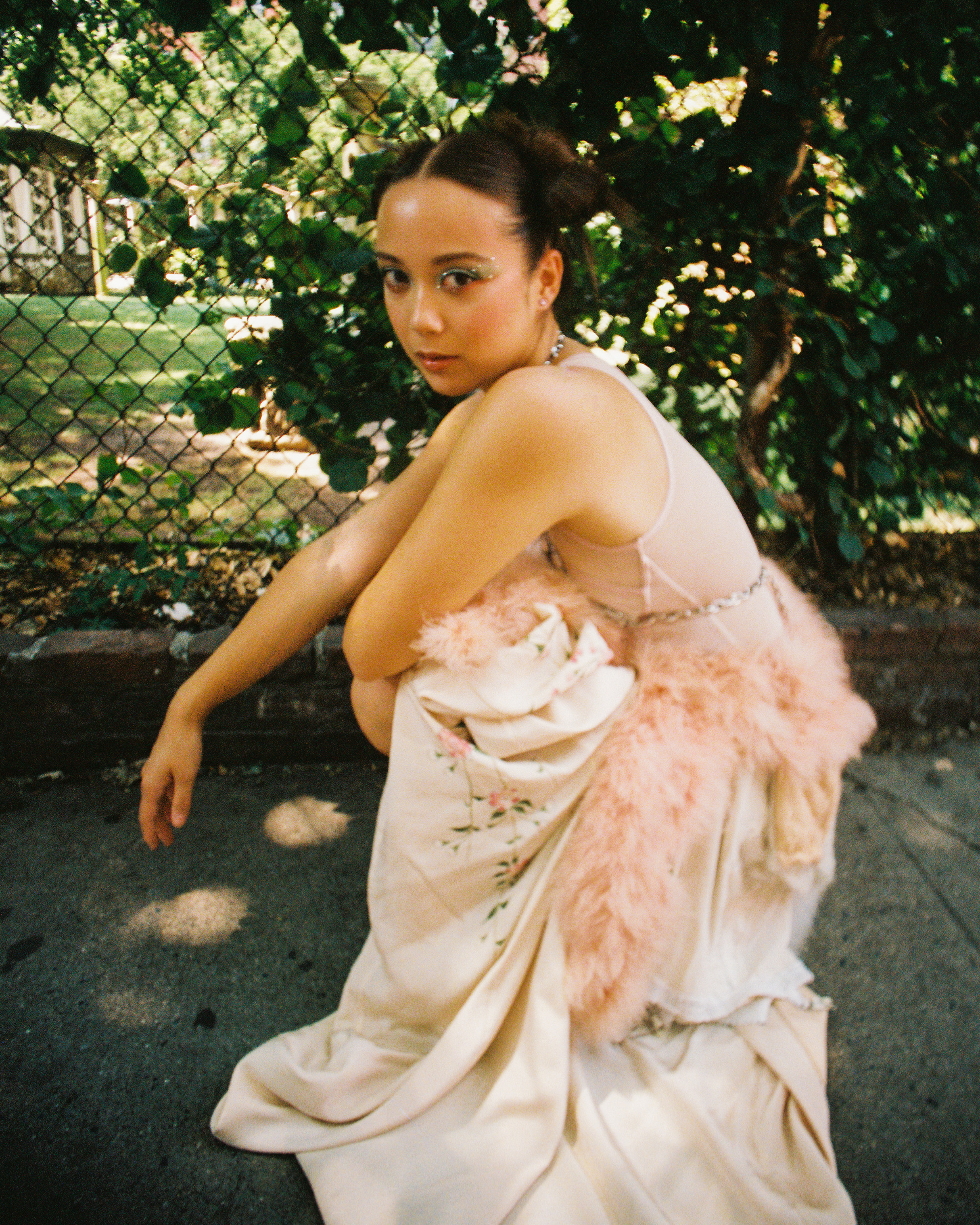
Bodysuit MARIEMUR, skirt KIMBERLY CORDAY, shoes RUI, bra KARA, bracelet SANDY LIANG.
A long-standing dispute in improvisational sonic forms like jazz hinges on the hazy line between delusion and genius. For Laufey, delusion looks more like a dreamscape than it does a mental institution, and the threshold between that and “genius” — the “official” standing of an artist who has made it — is manifesting itself right now in where she chooses to lay her head. She’s in New York right now for a string of promo gigs, interviews and finishing touches to be made on the business side of releasing her new record. The busybody underbelly of the city is a polar opposite from the notably less-hectic Los Angeles she’s called home since graduating from Berklee. “I think it’s a young musician’s rite of passage to go live that movie life for a few years,” she says of LA’s appeal, as, ironically, loud construction vehicles give her voice stiff competition somewhere in the distance. “I was stepping out of my comfort zone when moving to L.A, and I definitely think it’s important to not get too comfortable.” That doesn’t mean it’s easy to not kick your feet up: “What I will say, is that there is no feeling like getting off of a sweaty tour bus and just laughing in the sun.”
She’ll have another shot at not getting too comfortable post-travel come this fall, when she’s slated to embark on her first ever headlining tour — a 32-date slew of international performances that, as of the writing of this piece, is completely sold out with the exception of four shows. Performances for Laufey aren’t as stringent and to-the-books as a tightly-wound touring schedule might suggest, and coming off of her set at Newport Jazz a few days ago, she speaks on them with the same carefree flair that populates the music when it’s on wax: “I love doing solo sets," she says, "because I can kind of change it up on the spot. The amount of times I’ve been in the middle of a performance, looked down at a setlist and been like, I really don’t want to do that right now, and just done some other song…”
As much as this may be a common facet to an inherently-improvisational medium, it’s also one of several glimpses into a producer-consumer barrier Laufey is intent on breaking down. “Laufey as an artist is exactly who Laufey is as a person,” she tells me at one point. “The Laufey you get to know on stage and on social media as the artist is just very much who I am. There really is no difference. The way that I present myself on social media hasn’t changed at all since I became an artist. The way I talk, or engage with my friends, hasn’t changed. I write about my own experiences, and I experience to write.”
The collective experience retold by Everything I Know About Love is one Laufey simply describes as that of “a young woman in this century.” The knowledge she’s accumulated on love thus far is as far-reaching as it is dense — from interests that didn’t feel the same way, to people she herself didn’t feel the same way about, to dates that stood her up, to afternoons spent talking to bedroom walls — and for the great lengths she goes to make fun of such experience for the sake of empowering listeners, she also goes great lengths in redirecting a jazz lineage long hinged on stories not nearly reflective of her own. Laufey’s agenda is a simple one — to translate old music for younger ears — and without groundwork being laid to build bridges between generational gaps, genres like the ones she specializes in may be headed for the graves they spent decades of exclusivity digging for themselves.
With a debut LP coming out soon, a headlining tour slated to follow it, and more vulnerable work on the horizon, though, jazz isn’t going anywhere if Laufey has anything to say about it. She hasn’t been in love before, but if there’s anything she is in love with, it’s her music — enough, at least, to lug it up from an old-world past, and revitalize it for new audiences who never knew it was what they needed. “It’s not only love towards some sort of significant other,” she says of love, at one point. “I think it can also just be love for movies.”
Love for movies hinges on a love for stories, and when she leaves the community garden with a slightly high-stakes live-stream gig on her schedule for later today, very few signs point to her being done telling them. The ears — whether from an old vanguard shaking its fists at her revolution, or a new one falling in love with it — are perked. As for her own ears, they're likely busy with whatever her dad has been listening to on Spotify.
